
ISSUE THIRTEEN A
MONDAY 15TH JULY


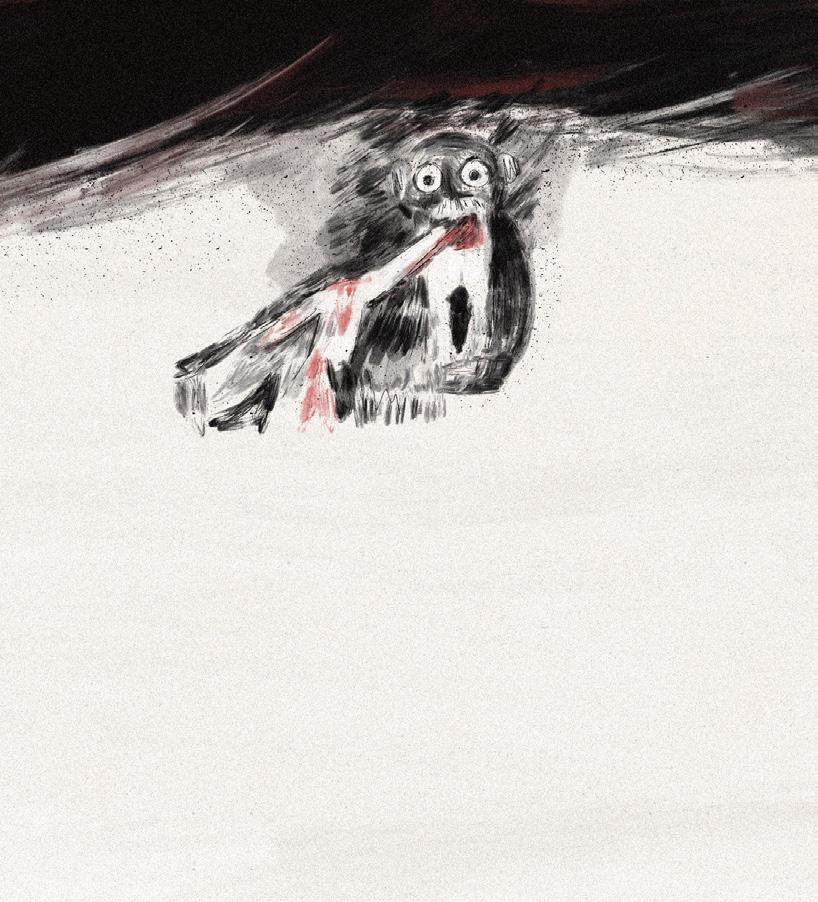







ISSUE THIRTEEN A
MONDAY 15TH JULY








I was driving with my passenger prince and designer Luka on the way to a cover photoshoot. Inbetween talking shit and playing bad music, the students in the backseat asked us, “Are you guys volunteers?” and “Massey pays for the mag, aye?” and “Massey approves every issue, right?”
“Do you really think Massey would approve of our shit?” is my most common response, accompanied by a shaking head.
Massive, like many student magazines around the country, is funded by the student services fee, also known as the student services levy. This fee gets you guys things like health and counselling services, clubs, sports, advocacy, employment support and so much more.
A small 1.2% of this fee goes to funding Massive We are funded by students, for students. For the most part, this 1.2% pays for mine and our designer’s full-time salaries, our part-time writers and illustrators pay, printing and delivery costs, and the odd quirky costume for a shoot. This money is given to us through your student association, Te Tira Ahu Pae. Technically, Massive is a service provided by the student association, however, we maintain editorial independence from them and the university. No one outside the Massive team must ‘approve’ the magazine before we go to print.
If you ask any student magazine editor, they will probably all say that their magazine is the poorest (except for Critic and Salient we know you guys are the ballers in this game).
ISSUE IS BROUGHT TO YOU BY:

Massive has had an incredibly small budget since it began in 2012. In the past, Massive could only afford to be online, or printed once a month, or printed every other week. It is a stretch for us to be able to print issues every week this year, and it took a lot of financial juggling from me, a 21-year-old who knows nothing about finances. Advertising also helps us to get a little more change in our pockets, and we do have ad quotas to meet.
It’s a constant struggle of wanting more money to hire more students, print more magazines, and work on bigger projects. But if you want Massive to talk more shit and investigate more of Massey’s antics, you can fill out the student services fee feedback form on Massey’s website.
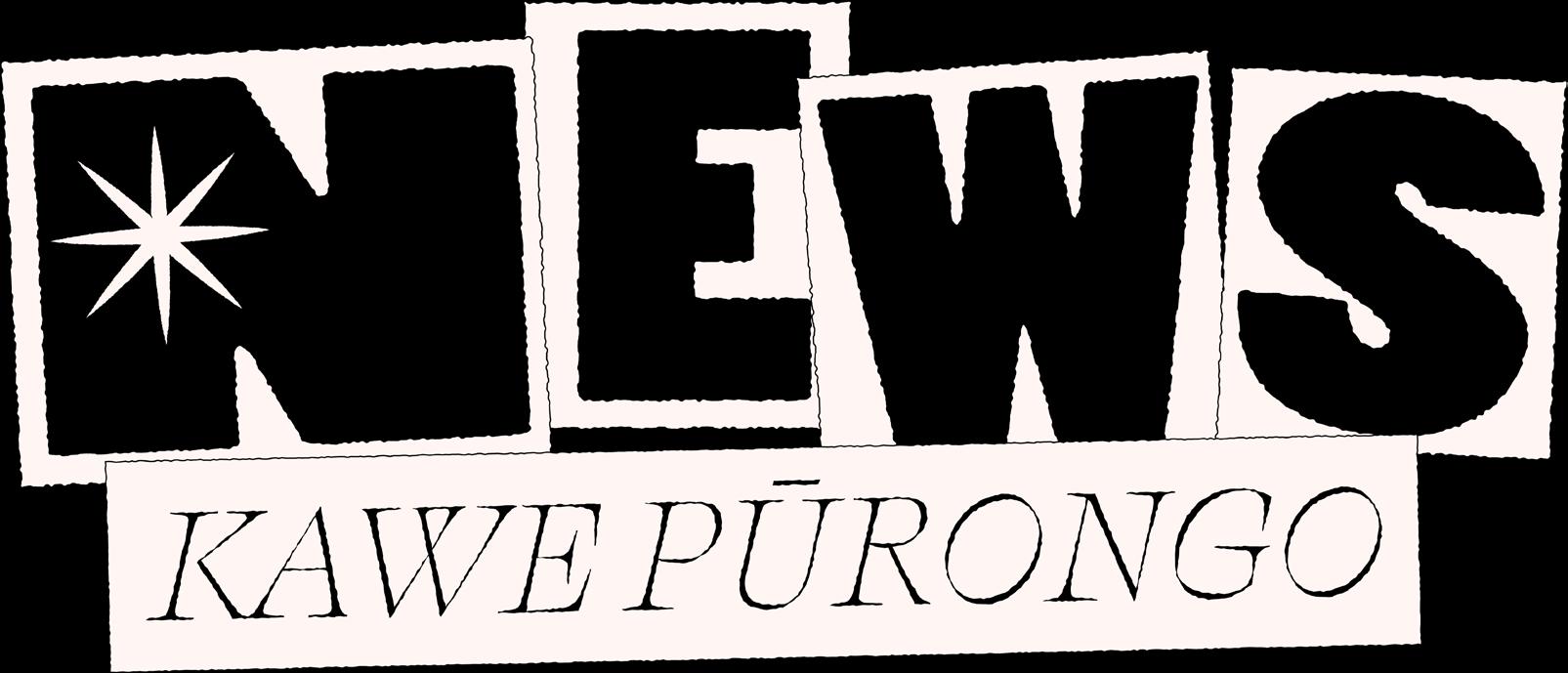
WORDS BY SAMMY CARTER A SHE/HER
While Massey University has not recognised Palestine as a sovereign state or Israel's attacks as genocide, it has condemned the act of genocide itself.
After months of student protest, on Thursday a spokesperson said, “Te Kunenga ki Pūrehuroa Massey University condemns violence of any nature. Genocide is a heinous crime that violates the fundamental principles of humanity and justice.”
“The university is of course saddened to see the violence and loss of human life.”
This comes as on June 20th, Massive revealed that the Massey University Foundation invested $7,105 in Israeli Government Bonds within the past three months.
Since October, Palestinians have been under the attack of Israel’s genocidal assault. At least 38,000 have died, and this does not include the many stuck under rubble.
The spokesperson said it is not for Massey University to comment on what the Foundation will do with its investments, as the foundation is a separate legal entity.
On June 21st, Massey Students for Justice in Palestine (SJP) demanded the university divest its Israeli Government Bonds, declare and recognise Palestine as an independent and sovereign state, and release a statement condemning Israel’s genocidal actions against Palestinians.
The group’s letter, with around 300 signatures, said, “we are demanding that you put your money where your mouth is.”
While the university has condemned the act of genocide, it has not recognised Israel’s actions as genocide against Palestinians, this being what students have asked for.
Students' demands came after a string of activism, with students protesting at the National Students Rally for Palestine in May, as well the All Out For Gaza national protest last month.
Additionally on June 14th, Wellington’s Fine Arts block was found covered in protest art with the words “Take a stance” painted on the walls.
Students' plea for Massey University to stop using Online Supervised Exams is yet to be answered, but cheating monitoring has been turned off for the academic year in the meantime.
During last month's exam period, at least 150 students faced issues and Massey was quickly forced to turn off the cheating monitoring system and allow students to retake exams.
Alex Murray, a fed-up student from Palmerston North gained over 1000 signatures on a petition asking Massey to stop using OSEs.
He was happy to have received so many signatures, “I did not expect it to go as far, but I still want it further.”
It was his understanding that management was aware of the petition and its decision will be influenced by it.
The exam issues and petition caught the attention of many, reaching RNZ, 1News, and Stuff.
Provost Giselle Byrnes said OSEs will be converted to Time Constrained Assessments (TCAs) for the remainder of the academic year.
“Making this decision now provides certainty for students and staff and allows staff to write exams that reflect the Open Book Open Web (OBOW) environment in which they will be completed by students.”
Byrnes apologised for the failure of service and stress caused to students.

She said an independent inquiry was underway, with results to be released at the end of this month.
Student rep Micah Geiringer said, “There is some work being done within Massey regarding this issue, but they haven't made it very clear to students. “
“If I was not a student rep involved in these internal processes, it would look like Massey is not doing anything and is continuing to ignore this issue.”
He said trust of students need to be re-earned, “I really hope they know that students will not forget what happened just because it will be a new semester.”
Geiringer gladly signed the petition last month, “I’m in the same boat, the majority of my exams were OSEs and I absolutely hated it.”
“University is not meant to be easy, but it should be the academic material that’s difficult, not the software you use to test students.”
He was glad the cheating monitoring was removed, “It was the right decision, but it could have been avoided all together.”
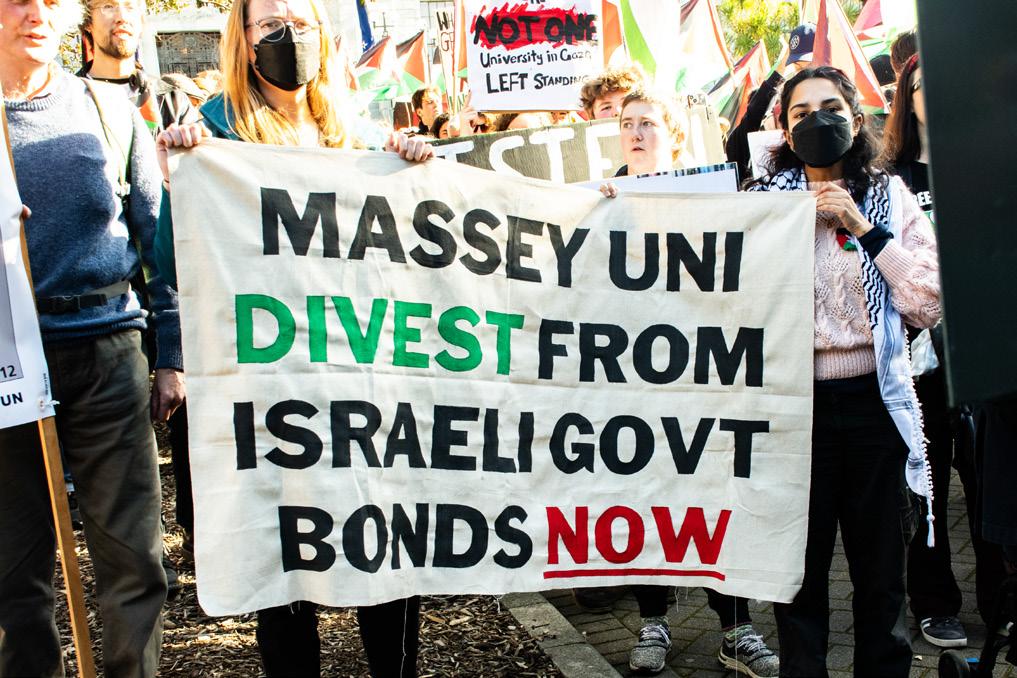
"It's so sad for us as Palestinian students to be funding Israel,” Noura, a Palestinian student says regarding the Massey University Foundation’s investment in Israeli Government bonds.
On June 27th, the All Out For Gaza protest brought Massey students from both Wellington and Palmerston North together marching through the capital.
Many held signs calling out the university, “Massey Uni divest from Israeli Govt Bonds now.”
Another sign said, “Dear Massey University, it has come to our attention that you are complicit in genocide.”
This comes as on June 20th, Massive revealed that the Massey University Foundation invested $7,105 in Israeli Government Bonds within the past three months.
Noura travelled from Manawatū to attend the protest. She felt the university did not have a right to be silent on the issue, "We have the right to get an answer from them."
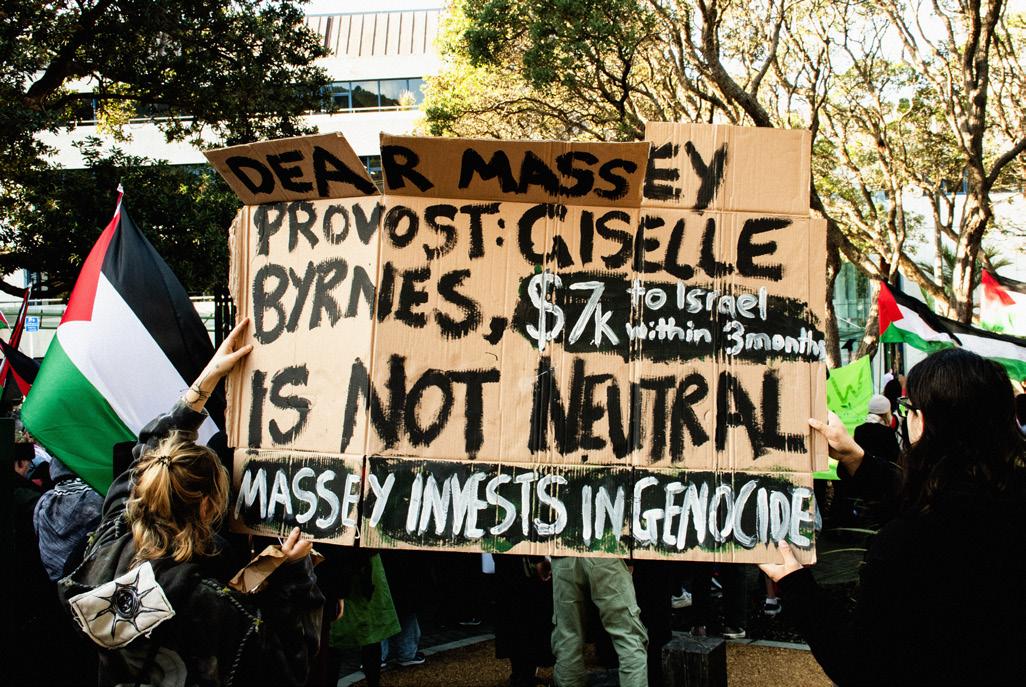

For the past 9 months, Israel has waged a genocidal assault on the people of Palestine. At least 38,000 have died, and this does not include the many stuck under rubble.
Fellow Palestinian student Danya agreed with Noura, "We pay them for education, but we don't pay them to fund Israel."
A spokesperson said, “The Massey University Foundation has $64 million invested in managed funds. Of this, within the past three months, $7,105.00 is invested in Israeli Government Bonds.”
They said income from the foundation’s investments supports student scholarships, academic positions and research at Massey.
All three of the foundation’s fund managers are signatories to the United Nations Principles of Responsible Investment.
The university wasn’t aware of any active links to companies with ties to Israel, or any active academic partnerships or research collaborations at this time.
WORDS BY YESENIA PINEDA A SHE/THEY
While it’s confirmed that Massey University is shutting down Albany’s Quad A, Quad B and the Business School buildings, discussion about the fate of the beloved food stalls is about to start.
Shelley Turner, deputy vice-chancellor university services said the university will be entering discussions with tenants about plans to relocate activities from Quad B, and current and future leases.
She said, “We acknowledge the need to provide students and staff with quality food and beverage options on campus.”
Turner said workshops with staff and students will be held on the Auckland campus to reimagine the campus for the future, “Part of this could include seeking thoughts on what food and beverage providers they may like to see on campus in the future.”
Workshops dates would not be provided as they are unconfirmed.

While Food for Thought remains for residents residing in the halls, Campus Kebab and Sushi Lounge would be sorely missed by students and faculty who frequent them daily.
Student and lover of the food stalls, Kevin You said, “It's irresponsible to just get rid of these two unique food stalls. They offer diverse options that cater to international students' tastes.”
“The university should think more about what students actually need and experience, not just focus on management and planning.”
“We really hope the campus can provide more dining options, not just limit us to one restaurant.”


A term often heard by students at a time of crumbling debt, sky-rocketing inflation, and eye-watering rent prices.
I have been heard to say this on occasion myself. Especially after receiving my most recent letter from IRD reminding me about my building student loan. Suddenly, a weirdly high number of TikToks have appeared on my algorithm recently suggesting I sell foot fetish content. But I’m sceptical. Does the gig actually make bank, or does it just create a really incriminating digital footprint?
One foot content creator on TikTok, @thequeenaria, claims she's managed to make thousands from the side hustle. Her niche is selling videos of writing men’s names on paper with her feet and then selling them for between $200-$300. She even takes commissions for an extra $100.
Honestly, it sounds perfect the financial dream I fantasise quitting my job for. So, I decide I shall dip my toe in the water.
I want to figure out my best chances of success, and dive into researching all things feet. This is where I encounter a major problem which hinders my success… Short toes don’t sell. I am a victim of the cruel short toe plague.
Luckily, I know just the person who will be willing to sell their long, recently pedicured, lanky and bony toes. My best friend and fellow journalism student, Leonie Sheehan. I have become her foot manager, her foot assistant... her foot publicist, if you will.
Thus, we begin.
A Shave hair off toes
A Massage feet with moisturiser
A Strip tease with a sock (erotic?)
A Cover toes in tomato sauce
A Fondle a banana with feet (remember to wash the banana afterwards)
A Wiggle feet around in carpet, grass, and mud (yum)
Perhaps my favourite is filming foot degrading videos a recent foot fetish trend where the watcher is supposed to be a bug on the floor and the foot model kicks and stamps on the camera.
The entire experience is uncomfortable to say the least. It is a hilarious experiment, and Leonie seems to enjoy her foot massage (until my mum walks in and ruins the mood). But it is exhausting trying to come up with niche ideas to set us apart from our competition.
As I am Leonie’s foot publicist, it is up to me to edit and post the content. I use my Adobe subscription (that I haven’t paid for in months) to edit all the photos on Lightroom. I edit out her face from the videos on Premiere Pro. And I even give my computer a virus downloading the perfect music for the videos (‘Oh Yeah’ by Yello). If I am going to damage Leonie’s digital footprint, I am at least going to do it professionally.
When it comes to posting this quality content, we try nearly every site we can find: Feetify, FeetLoversOnly, DollarFeet, FeetFinder, and FunWithFeet. We post around 20 pictures and videos on each site.
We wait patiently in anticipation for our foot lovers to see our creations. And after one week, we make an entire profit of (drum roll please) …
Needless to say, we are disappointed. My fantasies of becoming the Jeff Bezos of feet pics are trampled.
Turns out selling your feet doesn’t earn you financial success or at least not straight away. For now, I would recommend sticking to the more traditional methods of earning money. Part-time jobs, selling on Depop, and the occasional plea to the bank of Mum and Dad.
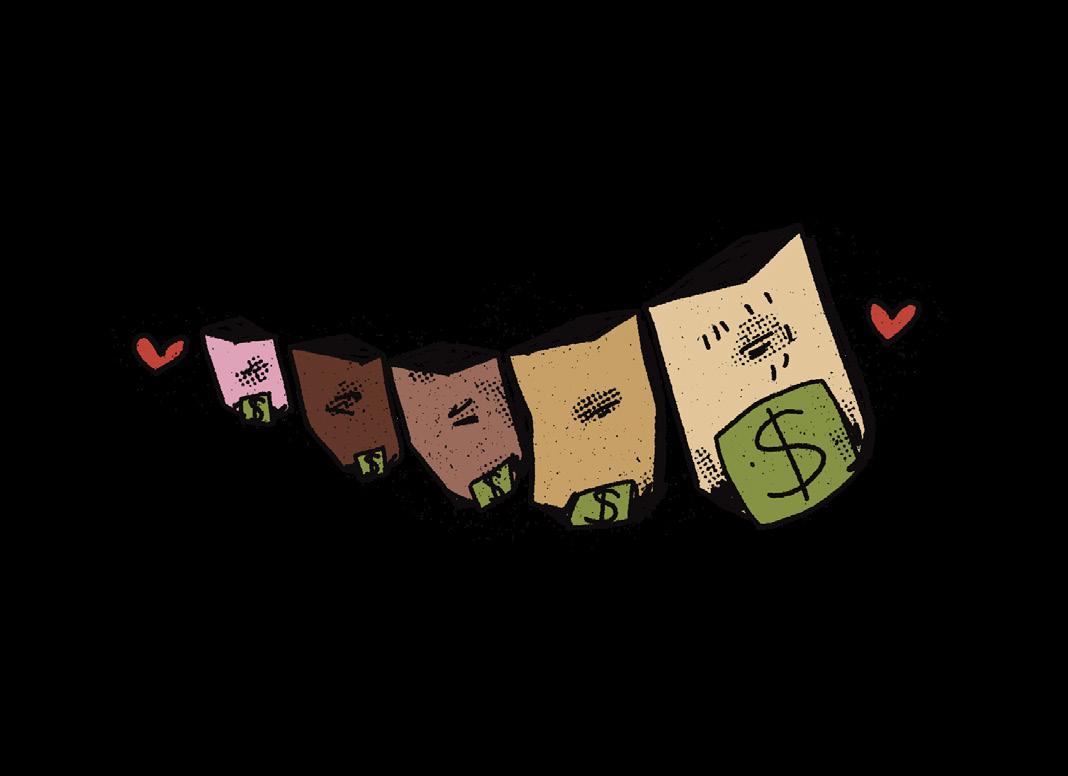
They never have a face, just an empty light blue suit or black pencil skirt and blouse. They walk through the back door of my childhood home like they own it, brandishing my application before throwing it in my face.
They scream at me. Liar. Leech. Burden. Straggler. Welfare Queen. Unworthy. Thief, stealing from the taxpayer.
The nightmare may be in my head. But the fear is real. The fear getting caught.
I was one of the fortunate few to qualify for StudyLink’s student allowance, and despite my dad not being in my life, I had to lie to get it.
There I was, 18 and soon-to-be a highschool graduate lying in bed with my laptop and my soft toys, ready to take the next step society requires before deeming you a functional adult: University. I had the grades. I had the acceptance. I had money from having a job since 15 to pay for halls.
As the child of a single mother who didn't make nearly enough to hit the income cap, I thought StudyLink was going to be the easiest hurdle to jump.
After a childhood of financial insecurity and more than a few bad experiences with Government support, I thought I would finally get some financial certainty from a service that wouldn't leave with a huge disadvantage post uni.
I don't have parents who I can go to for money when things get tough this was my safety net. And then I read the requirements for submitting applications with a single parent's income...
Your parent must be:
Dead (with proof).
In jail.
In a psych ward.
Have abused you in some way (with proof).
Had such a relationship breakdown, any contact with them will cause extreme psychological distress (with proof).
You don't know where they are.

You’ve got to be fucking kidding me.
My father lives overseas, I know where he is. Yet my mother has not seen any money from him since I was 5. I haven’t seen him in person since I was 7. I had an email address but could never be certain of a reply. When I was 8, I found a phone number I stayed up into the early hours so I could call it at a time zone appropriate time only to be hung up on after 30 seconds.
But according to StudyLink, if he’s my Facebook friend then he must be taking me out for ice cream and helping me with my algebra. He gave me his email address, so he must be willing to financially support my education.
Therefore, they require his income information in my allowance application. I don't even have his address, let alone his income information.
The StudyLink website says, "The Government’s policy is that students need to share the costs of study with their parents and the Government. This is regardless of whether they financially support you.”
It’s like they stabbed me in the guts with a knife that had ‘Daddy issues’ written on it.
After years of coming after my mother, the threat of sanctions, the feeling of being a burden on society, the Governments final 'fuck you' would be to deny me support I needed and was entitled to, on a technicality.

So, we decided to lie.
We said we didn't know where he was.
The anxiety I felt in those weeks waiting for approval was unbearable. I couldn't sleep, I was either not eating or gorging on food. I watched season after season of TV because turning it off for even a second caused my head to swim.
And then... it got approved. But the fear never went away.
The entire process left me feeling dirty, but also violated. I was forced to write complicated and painful family dynamics on a form for some stranger in the Government to read. When I think about it, that's really fucked up.
In 2023, the Green Party wanted to give all university students an allowance of $385 per week, paid for with a fair tax system. This idea was based off their student wellbeing inquiry which found that two-thirds of students regularly don’t have enough money to buy food, clothing, pay bills, get health care or other basics.
Perhaps if this became reality, I wouldn’t have to lie to get the support I deserve. There is nothing wrong with me, the system is wrong. So, regardless of all the nightmares and all the fear, I have no regrets.
StudyLink may be my sugar daddy, but maybe he won’t be so deadbeat forever.

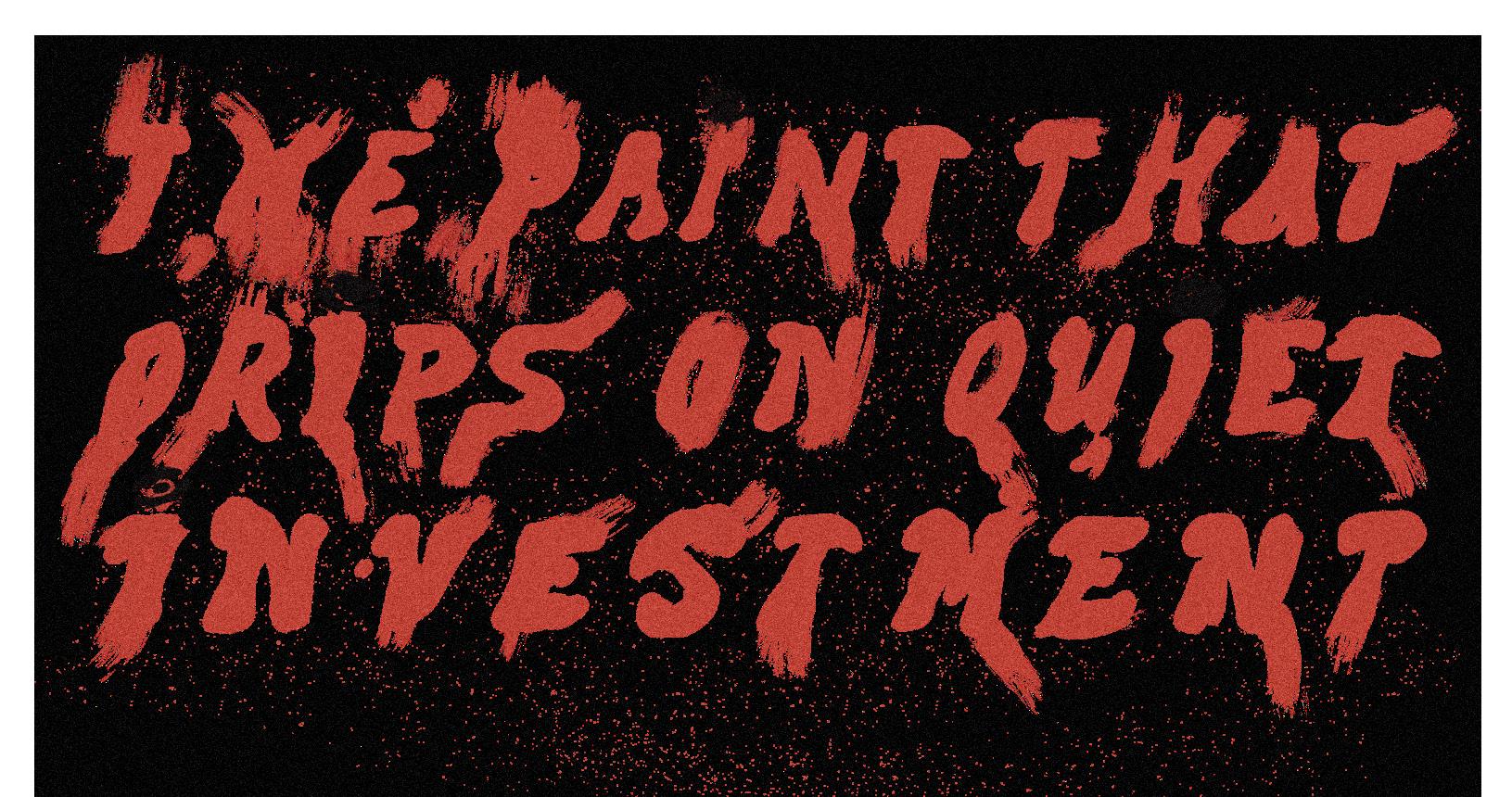
I walk up a stairwell dodging the dripping paint on the walls and floor. Red, green, black, white. A couple students, some alumni and friends take out their frustration at Massey University’s silence on the Fine Arts stairwell on the night of June 13th. They paint 12 of Palestine’s national birds, sunbirds, for every university destroyed in Gaza. They throw paint haphazardly. I watch a sketch come to life of namesake William Massey spewing blood. They pour red slime down the stairs. They cover their hands in red paint and stamp them on the wall. It is ugly and raw. Words I’d also use to describe genocide. I ask if staff know what they are doing, and I’m met with shaking heads.

The protest art was revealed to Massey University one month ago. But today, the university is yet to recognise Israel’s genocide of Palestinians. And the question lingers is it their job to?
Since October, Israel has waged a genocidal war against the people of Gaza, killing at least 38,000 and destroying hospitals, schools, mosques, churches, factories, homes, food and water sources. Thousands of university students across New Zealand have stood with Palestine this year, demanding universities divest from Israel and provide scholarships to Palestinians.
But last month, I watched a student paint a Massey University spokesperson’s quote spiraling down four walls: “As is appropriate for a university, Te Kunenga ki Pūrehuroa Massey University has not taken a single position on this issue.”
On the day of the reveal, I arrived at 9am ready to catch the reaction of staff arriving for the high school experience day. But security had already cut off access and the paint and slime were being cleaned up. I tried to get in, to which security told me the building was under “maintenance”.
“How did you hear about this?” a security guard asked.
“I was here yesterday when they did it,” I replied.
“Oh, were you? Who did it?”
“Well, I can’t tell you that.”
The protest art was covered the next day, with splatters of red paint still seeping through, like blood stains.
I asked Massey University many questions regarding the incident, including: What financial links does Massey University have with Israel? I was pleasantly surprised to see them answer it, but what I read was not so pleasant.
A spokesperson said, “The Massey University Foundation has $64 million invested in managed funds. Of this, within the past three months, $7,105.00 is invested in Israeli Government Bonds.”
Government bonds are a bond issued by a country's government, with the promise to repay borrowed money at a fixed rate of interest over a set period of time. This means the Massey University Foundation is directly giving funding to a government murdering thousands. While this investment number may seem small in the scheme of things, that could pay for one more weapon, one more bullet, and cost another life. In a document leaked to Massive, it states that the bonds are part of a $6.2 million bond portfolio, meaning if the foundation wished to divest the Israeli Government Bonds, it would have to sell the entire portfolio.
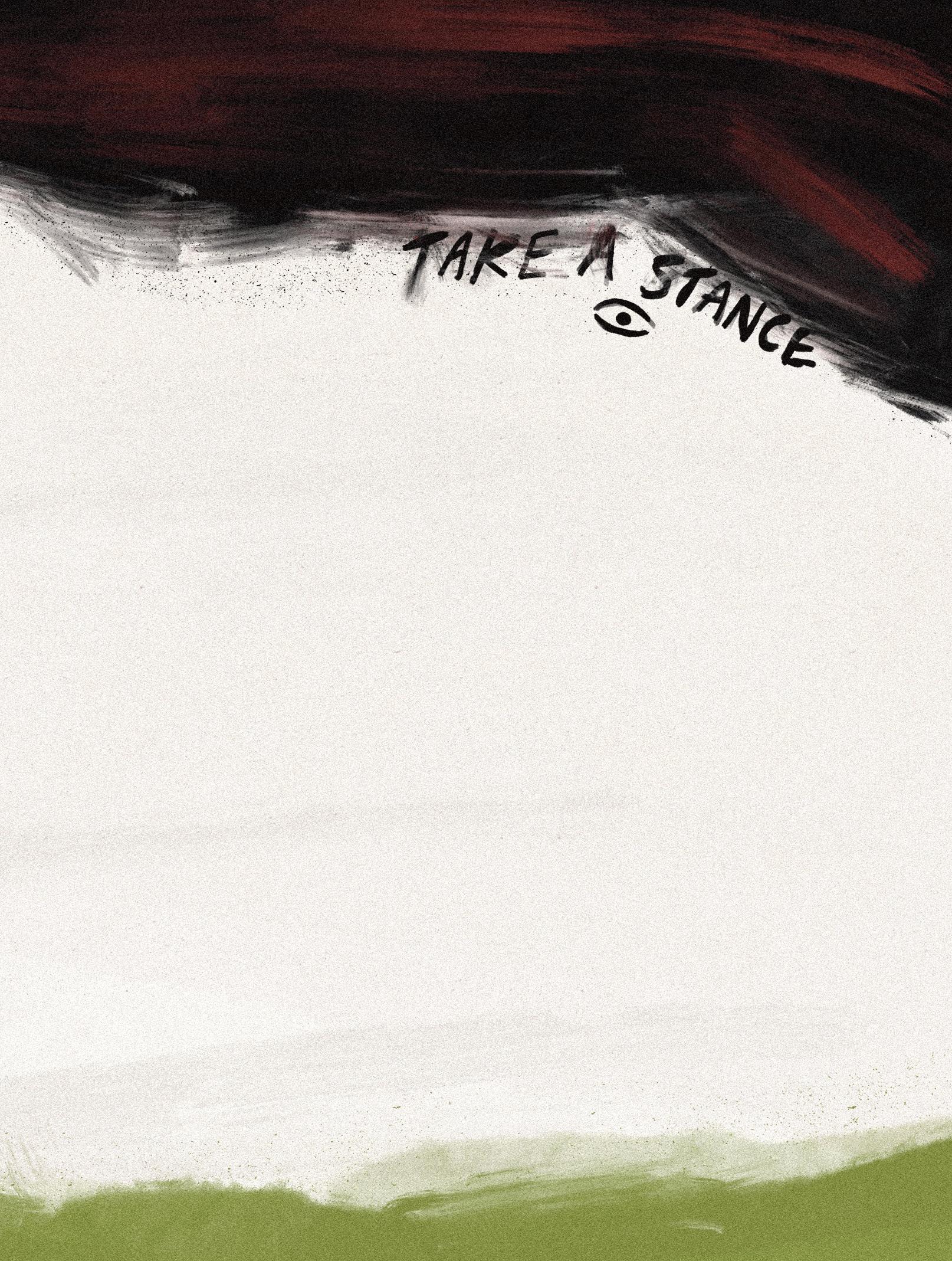
The spokesperson said the fund managers are signatories to the United Nations Principles of Responsible Investment. This network is not part of the United Nations per say but is supported by it. After reading through its principles, it seemed to be a ‘tick box’ for investors. The signatories' principes speak about environmental, social and corporate governance issues. However, it appeared more concerned with how they affect business rather than people. The signatories’ commitment said, “We believe that environmental, social, and corporate governance (ESG) issues can affect the performance of investment portfolios”.
Releasing the news of the Massey University Foundation ties with Israel could not have been better timed depending on where you’re standing. Shortly after Massive’s breaking news, @masseyuni on Instagram shared provost Giselle Byrnes’ article titled, Opinion: ‘A right to remain silent?’
The opinion piece said it’s not a university’s role to take stances, but to create a safe space for students and staff to do so. “Individuals may have views, but the institution itself does not have the right to state views; it is the role of the university to create the conditions where staff and students may exercise these rights.” Students were frustrated that Byrnes repeatedly called the issue the “war” in Gaza.
The post, which is now deleted, was flooded with comments of people who felt investment in Israeli Government Bonds is a stance in itself. One comment in particular stood out to me, explaining how Massey’s strategy states it will step forward for humanitarian crises.
This commenter wasn’t wrong. The university’s strategy states that global megatrends, including humanitarian crises, “require that universities such as Te Kunenga Ki Pūrehuroa Massey University step forward and address the complexities those issues present”.
The strategy also seemed to contradict Byrnes statements, with the university taking stances on issues such as Te Tiriti o Waitangi and climate change. Page 4 said Massey University is “grounded on our commitments to Te Tiriti o Waitangi”. Not to mention that the university consistently advertises itself as a Te Tiriti led institution. The document goes on to say that the climate crisis poses a serious threat to planetary systems and to human life, and that the university is committed to developing students that will contribute to a low carbon future.
Despite this, Brynes’ article states, “It is not for the institution to make a specific statement or adopt a singular position on any particular issue.” While Byrnes’ article was labeled as ‘opinion’, very similar comments have been sent to me by a Massey University spokesperson. The two both referenced the NZ Education and Training Act 2020 and academic freedom. The spokesperson said, “We encourage our students and staff to discuss and engage in informed debate as is appropriate for a university.”
A Fine Arts student who took part in the protest art, Tamara Irvine, came forward shooting Brynes and Massey University down. Irvine said it was “absolutely not” fair for the university to say it is not their role to

take stances, while taking them on other issues. “They clearly have taken a stance on the issue. To be financially supporting the extremely violent colonisation and ethnic cleansing occurring in Palestine goes directly against Te Tiriti.”
Irvine pointed out that the university is also Rainbow Tick certified, wondering why it can show support for the Queer community but not Palestinians students. “Massey’s leadership is very contradictory about when they speak up about violence and when they don’t.”
They felt the university had missed what students are asking for. “They keep twisting our words, making it sound like we’re asking them to pick a side between Palestine or Israel which is not true. We’re asking them to condemn genocide which is the bare minimum they could do.”
Irvine was part of writing the letter left alongside the protest art in June, addressed to Fine Arts lecturers and staff by name. The letter read, “You are leaders in this space and we look to you as role models ... Israel has destroyed all 12 universities in Gaza. We want to know why you have said nothing.” This letter had mixed responses, with comments saying it was disrespectful to the lecturers who could feel like their jobs are at risk if they speak out.
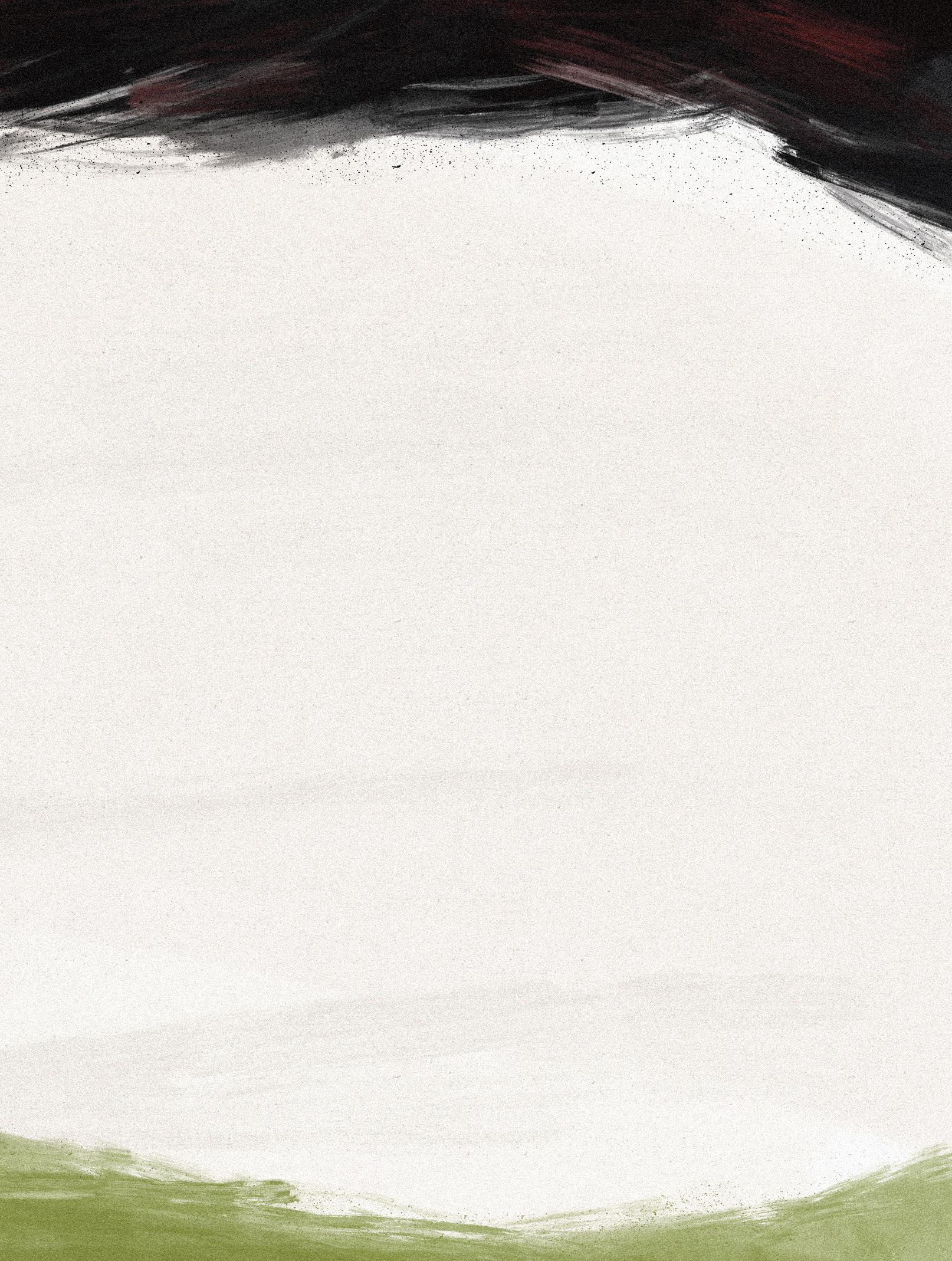
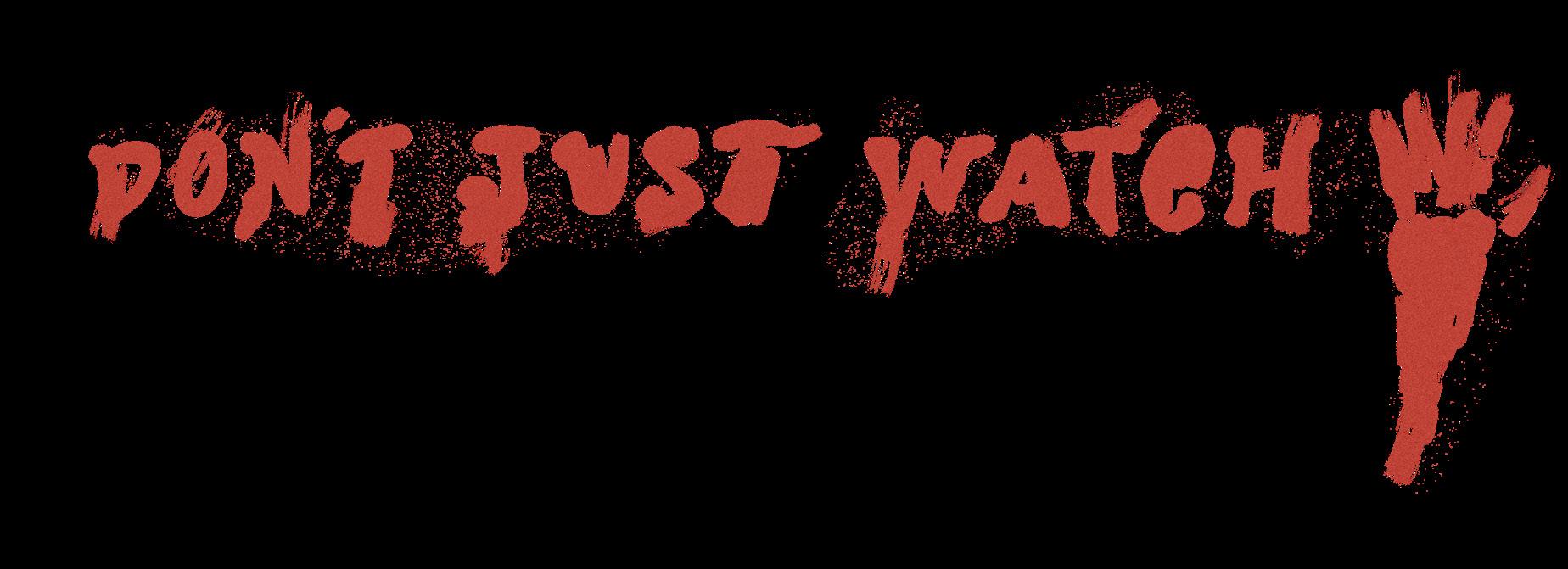
if Irvine had been asked not to speak to media, they were hesitant to answer, “Not explicitly, they (staff) didn’t want media involved in the first meeting.”
I suppose there is some healing to be done between Fine Arts staff and students now. Irvine suspected that staff may not want to speak up individually due to the many jobs being cut and the “threatening” and “messed up” nature of this.
While it was difficult to find a Fine Arts staff member who would speak to me, Kingsley Baird, acting head of school stepped forward, squeezing me in between PhD students. Like Irvine, he seemed nervous to speak to me, answering questions in a pre-rehearsed tone.
As an artist, it was clear he appreciated the passionate nature of the protest art. However, “There are some negative things about this. The naming of the staff I think was very unfair and really hurtful.” He said, “There was no discussion with the staff beforehand to find out what they were doing, what their views were, how they were engaging with this.” He hoped moving forward better dialogue could be had.
When asked what Baird’s individual stance was on Israel’s genocide of Palestinians, he said, “I am supportive of an independent Palestine state in which the people can lead free and secure lives. And I wish the same for the people of Israel.”
From an employee's perspective, he appreciated the university staying ‘neutral’. “I wouldn’t work in a place where I was being told what to think and how to feel by my employer. That is not the case in universities in New Zealand at least.” However, he seemed mostly onboard with the students’ wish for Palestinian scholarships,
“I’d actually support the university providing scholarships to all sorts of disadvantaged people here and overseas but particularly people who are in war torn countries.”
He said the Israeli Government Bonds should be “seriously looked at” along with all investments in things like fossil fuel or tobacco companies. “Ethical decisions need to be made about all kinds of investments.”
I am left expecting the unexpected. Massey University is constantly surprising me. I didn’t expect them to cover up small ‘Free Gaza’ and ‘Honour Te Tiriti’ tags on the Wellington campus in April. With the backlash of that, I didn’t expect them to cover up pro-Palestine protest art shortly after without consulting students. I didn’t expect them to be honest about financial ties with Israel.
But hoping this honesty streak could last, a week ago I asked Massey University a question that might leave students with an answer: Does the university condemn genocide?
“Te Kunenga ki Pūrehuroa Massey University condemns violence of any nature. Genocide is a heinous crime that violates the fundamental principles of humanity and justice,” a spokesperson said.
The student’s plea for the university to condemn genocide has been answered. I felt relieved by this, but also left wondering if the university recognises the genocide of Palestinians specifically. After all, money talks louder than words.
For now, I am left walking up a spiraling staircase of red, green, black and white paint. I am left hearing the chants of protest marching through the cities. I am left reading cardboard signs calling out Massey University. I am left with constant comments and messages from students. So much more is yet to come, and the volume is only getting louder.
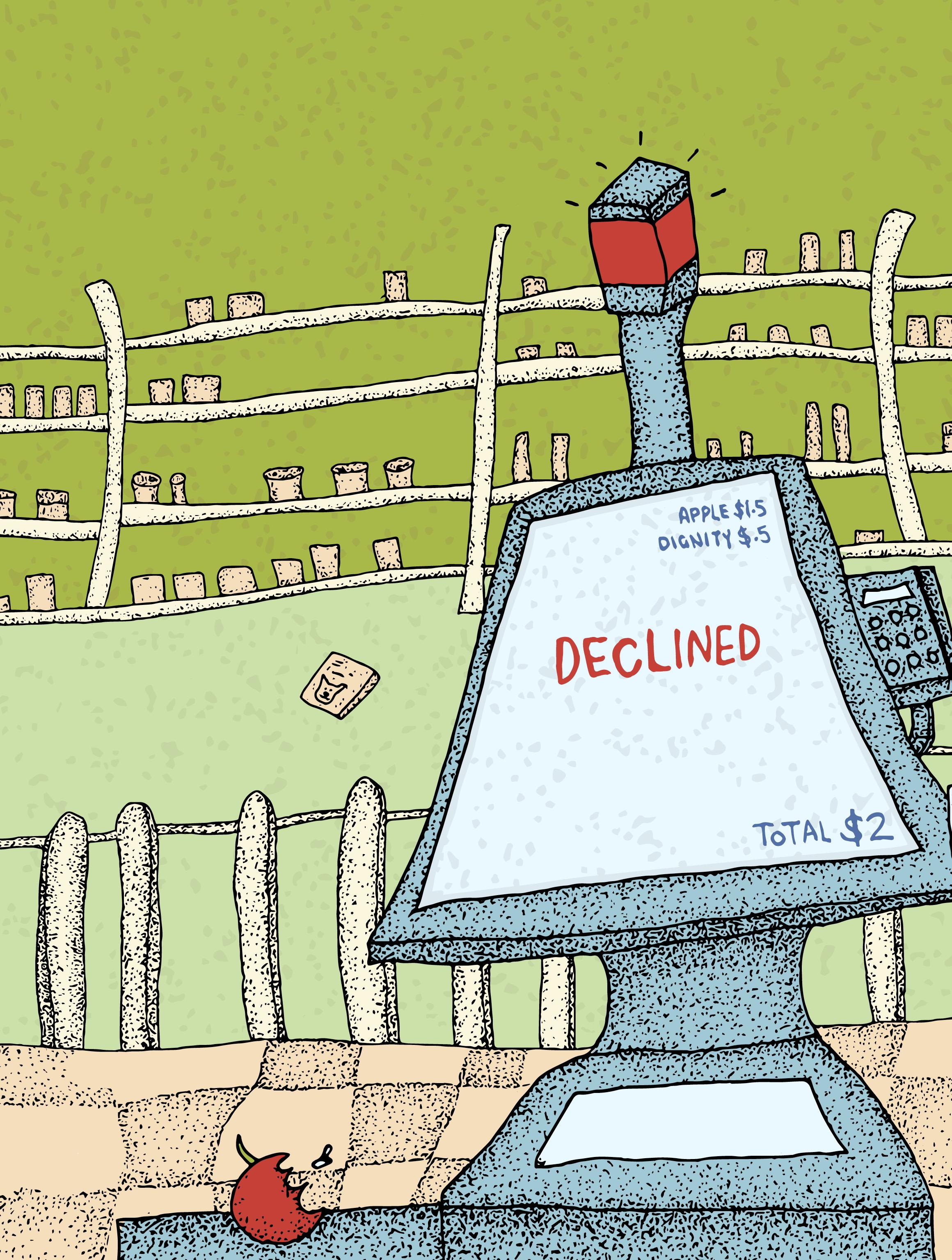
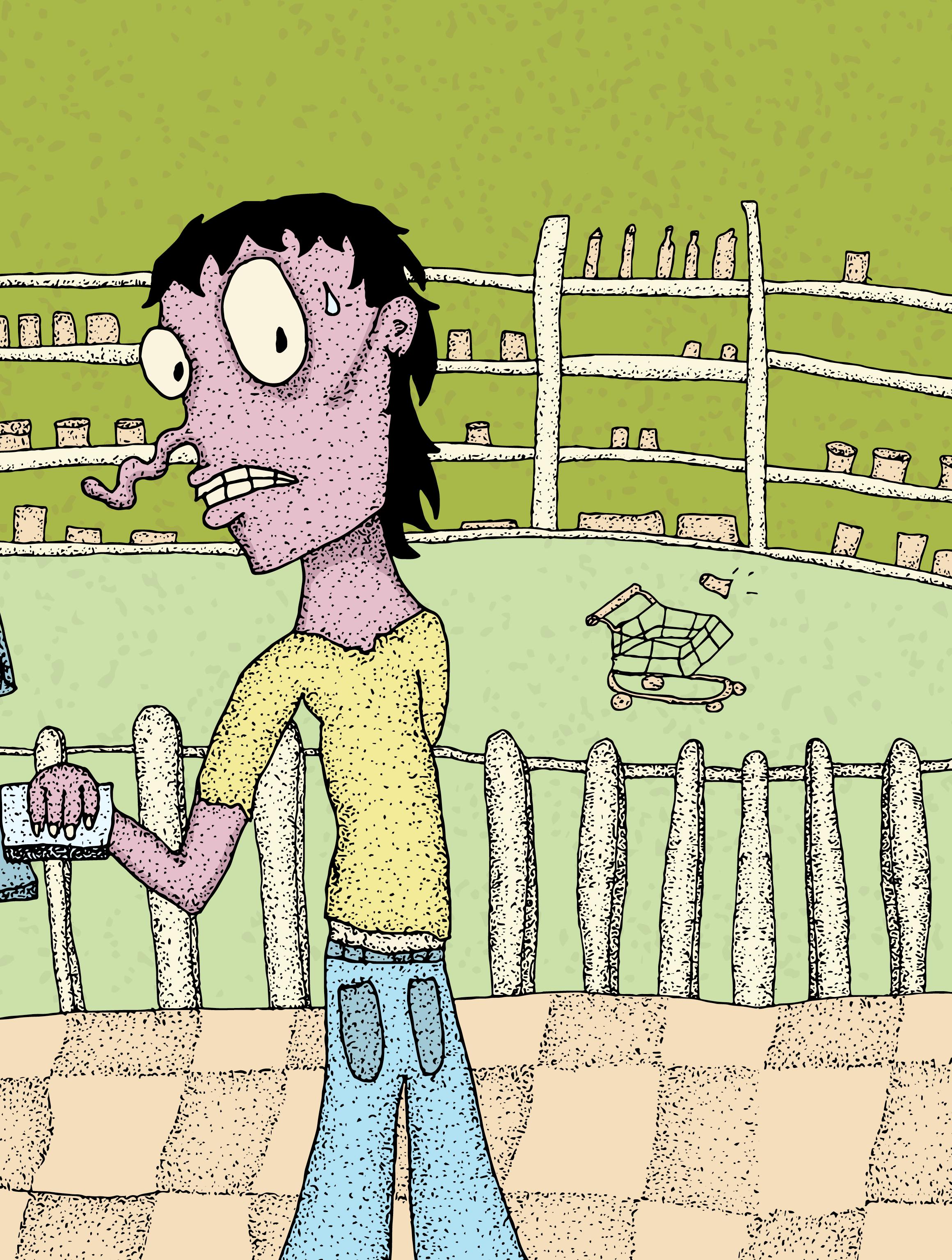
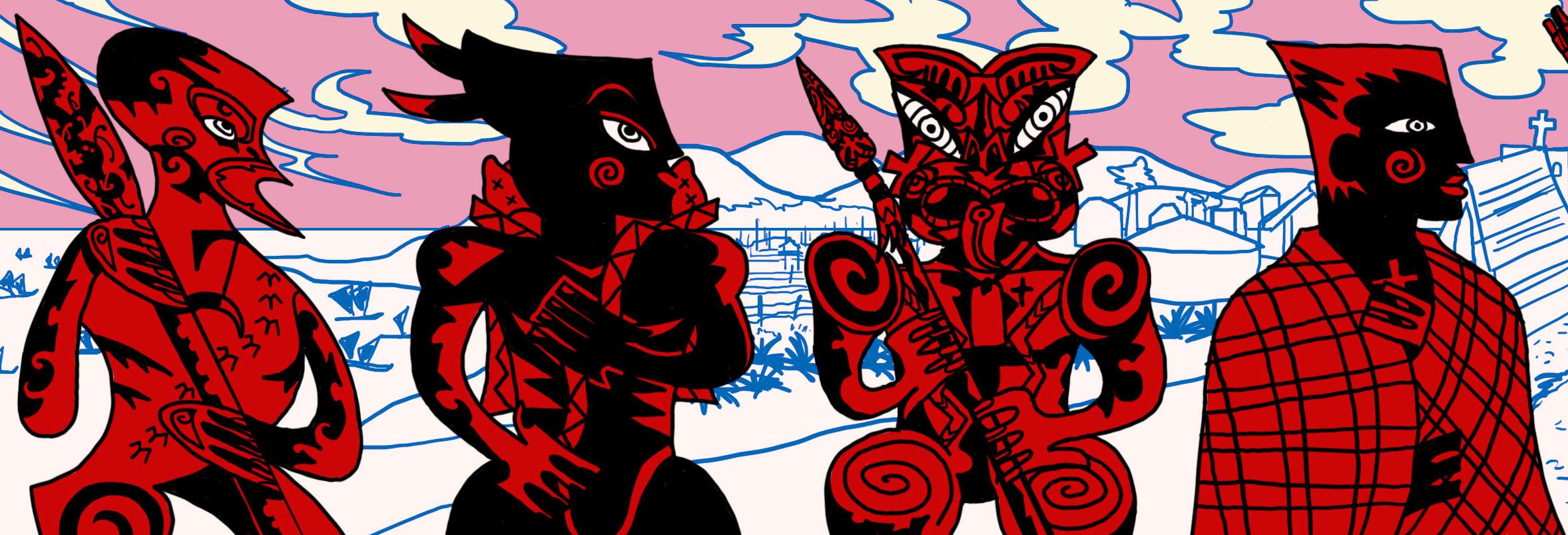
While some may have visions of green when discussing Māori scholarships, I think about how they are just a small drop in the bucket of debt the New Zealand Government owes.
The discussion of iwi-based grants and scholarships is a tired argument at this point, with almost every Māori having an anecdote about trying to explain why the Government isn’t just giving us special treatment. Yet there are always people who focus on the money they feel they are missing out on, grants they think they're equally entitled to.
But for Māori, we see the centuries of money and investments that were lost to the musket wars, land confiscations and exclusion from industries and institutes founded by European settlers.
The early Māori economy had no monetary basis. Instead, the earliest version of the economy for Māori was one that thrived on bartering and exchanging gifts both within iwi and externally. After their first arrival on Aotearoa’s shores, Māori developed sustainable methods of harvest that allowed them to create a trading system. This strengthened their inter-tribal relations and enabled individual hapū to be self-sufficient. Coastal hapū held capital over kaimoana, while more inland whanau produced a variety of fruit and vegetable produce. There was also the trading of different types of stone for weaponry, artistry, and jewelry.
But by far, the most important resource available to Māori was the land of Aotearoa itself. The land was what provided Māori with the resources they needed to not only survive but also lead rich lives.
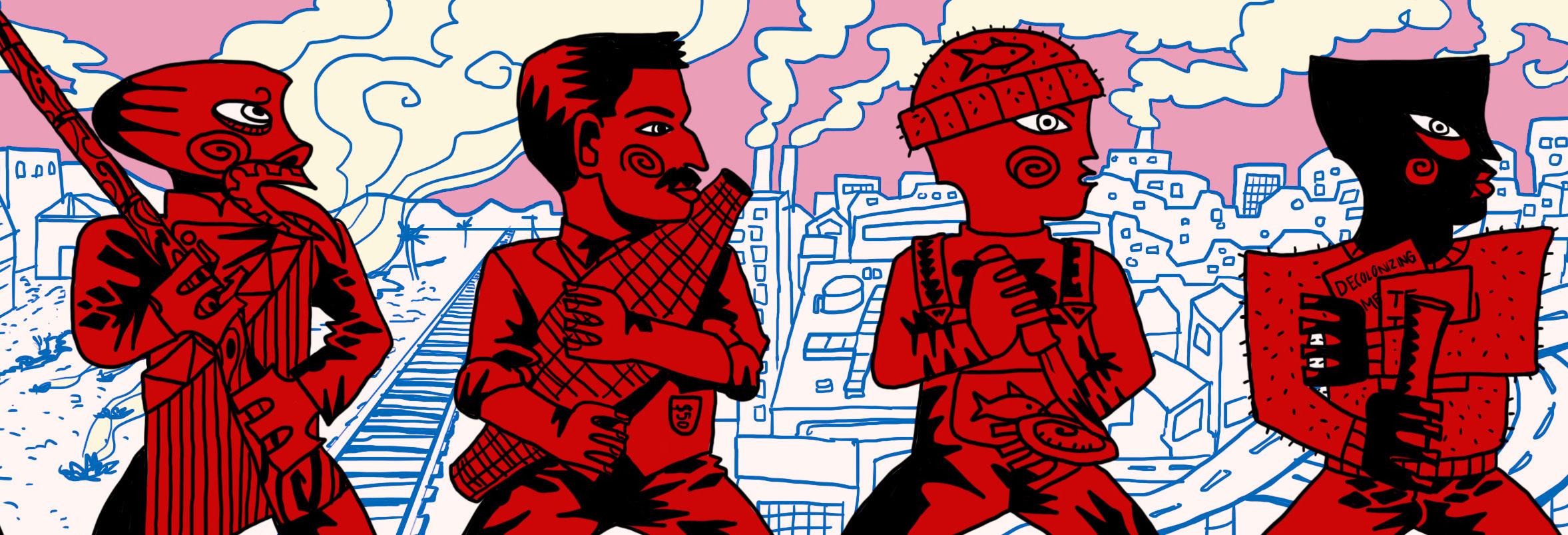
Looking at the resources Māori prioritised, it becomes apparent that early Māori had no use for money, especially not how their European counterparts did. At the time, money would have done nothing to sustain an iwi in the way that food, stone, and land did.
While early Māori had no use for European currency, the settlers were still able to provide unique resources that Māori could utilise in their own culture, such as iron tools and livestock. In early trading settings with the Europeans, Māori became adept at navigating deals that would better benefit their needs. The settlers had little say if they wanted access to the food that Māori cultivated. And by the 1850s Māori had carved out a mutually beneficial market.
However, this dynamic of reliant trade came to a bitter end with the introduction of muskets.
As the lethality of muskets became apparent, the demand for them surged, as did the prices Europeans could charge. To gather enough muskets for warfare, many Rangatira worked both their people and their lands to exhaustion. This proved unsustainable and tanked the Māori economy. Hapū members were sometimes on the brink of starvation and forced to strip the land of its resources only to then watch them be given to their Pākehā counterparts. Even once the iwi had enough guns and could focus their kai on themselves again, the subsequent wars led to back-and-forth territorial losses. Losses that were quickly claimed by European settlements.
The loss of Māori land to settlers who had unwittingly sparked wars further wounded the already deteriorating Māori economy. Conditions were made worse when the Crown decreed that it would confiscate land from Māori
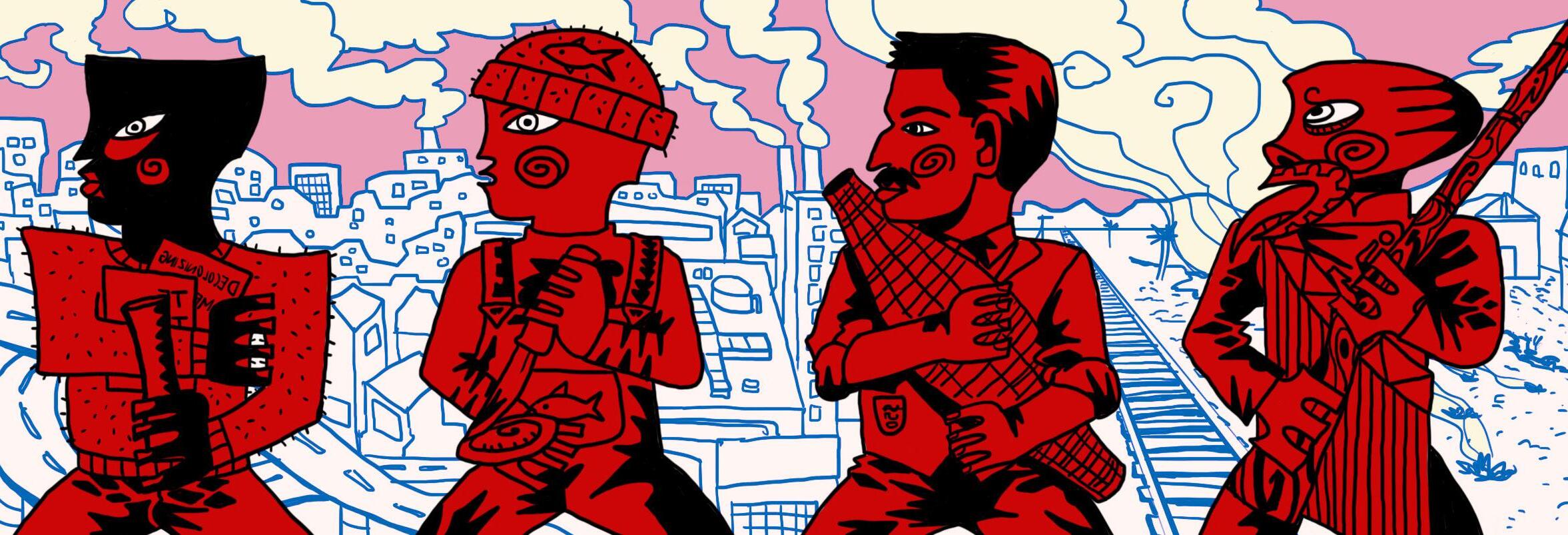
who were “rebellious” to the Crown. It was a vague and greedy term, allowing 1.3 million more hectares of land to be stolen from iwi across Aotearoa. From there, Māori were left struggling to find space to cultivate their once thriving agriculture as they lost more and more land over the decades.
While this was happening, British money slowly crept in as Aotearoa’s legal form of currency. By the time it was officially established, the musket wars were ending. Many Māori were too busy dealing with the fallout to see that the Europeans were investing in the land for their future generations. Industries such as the wool economy and dairy production proved wildly successful and led to an amass of wealth that most Māori were blocked from. After having the rug of currency swept out from under them, Māori could only watch for centuries as they were blocked from the land's monetary worth. With no foothold in their ancestral lands, many iwi slipped deeper into poverty.
When the Government pours upwards of billions of dollars into different iwi, it is not because it is a “handout”. It is a small beginning in providing reparations. Truthfully, most of the money provided is nowhere near what the total income of the iwi could have been had they retained their whenua. But when iwi receive financial compensation, it is entirely up to them to decide what they wish to do with it. The scholarships and grants for younger Māori are an independent choice, an investment of their own. A chance to finally break into the industries and institutions they have been discouraged from through their younger members.
Previously, older members were scared off from settings like university due to the belief that they were established for Pākehā only. My whanau is familiar with this fear, as my dad went to university for a single day and dropped it after failing to find a single Māori besides himself on the campus.
So, the scholarships that iwi provide are not just investments in whanau that would not otherwise have the opportunity to afford learning costs. They are also an encouragement to create a place in universities for us where previously there wasn’t one. The money that Māori are given allows younger members like me to open doors that were once closed to all of us, so that the wider iwi may flourish again.
An extended kinship group made up of multiple smaller units known as ‘hapū’. Is often roughly translated to ‘tribe’.
A Māori chief, or high-ranking noble.
HAPŪ:
A smaller political unit within the much larger Iwi.
KAIMOANA:
Food that is gathered from the sea.
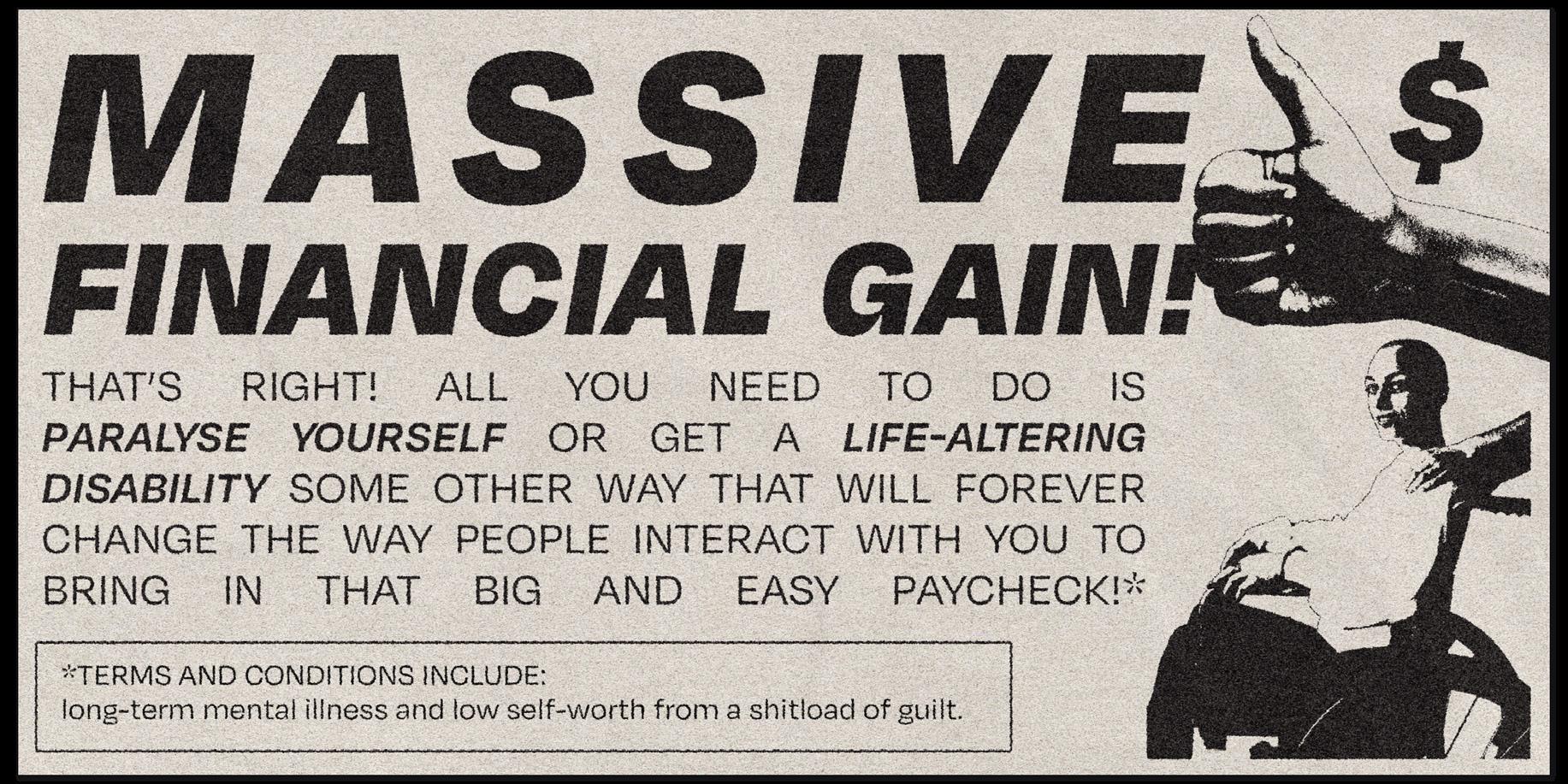
The disability grants I’ve been able to get have made my life significantly easier. The wheelchair that allows me to get around, and access to experiences I never would’ve had otherwise. It can feel like a wonderful blessing at times. A desperately needed wish that has been granted.
But they never tell you about the cost. The unexpected monkey’s paw of this wish you only made ‘cause you needed to. The pageantry nature of it all, where you must dress up the ‘tragedy’ for a board of judges to decide if you are needy enough to receive financial aid. The unspoken sense of competition you can feel with your peers who are also going for the same, extremely limited, aid. How it becomes difficult to keep facts about your anatomy private from strangers when it’s become second nature to talk up the difficulties.
The finishing stroke is the guilt.
How fucked is it when the thing that causes you sadnesses is also the reason your family can eat some nights?
I feel guilty feeling bad about my disability when it
provides so many benefits try talking about that in therapy when the thing that pays your therapist is the cause of your problems.
But part of this guilt started to fall away in June, when the Government decided to dump the programme topping up the pay of disabled workers to the minimum wage. To save $56 million, we could see 900-plus workers, mostly with intellectual disabilities paid as low as $2 an hour. But the Government says it’s better than not working at all.
This is a slap in the face to all the ways disabled people must demean themselves to get financial support. For example, I can’t marry if I still need financial support from the Government, because my lover is obviously also meant to be my caregiver and sole provider. I know I joke about wanting a sugar daddy a lot, but this seems a bit extreme.
While I wish I didn’t have to make out my life to be a total tragedy if I want to get the support I need to survive, thanks PM/knock-off Lex Luthor/Dr Eggman hybrid for fucking me over even more so I don’t feel so bad.
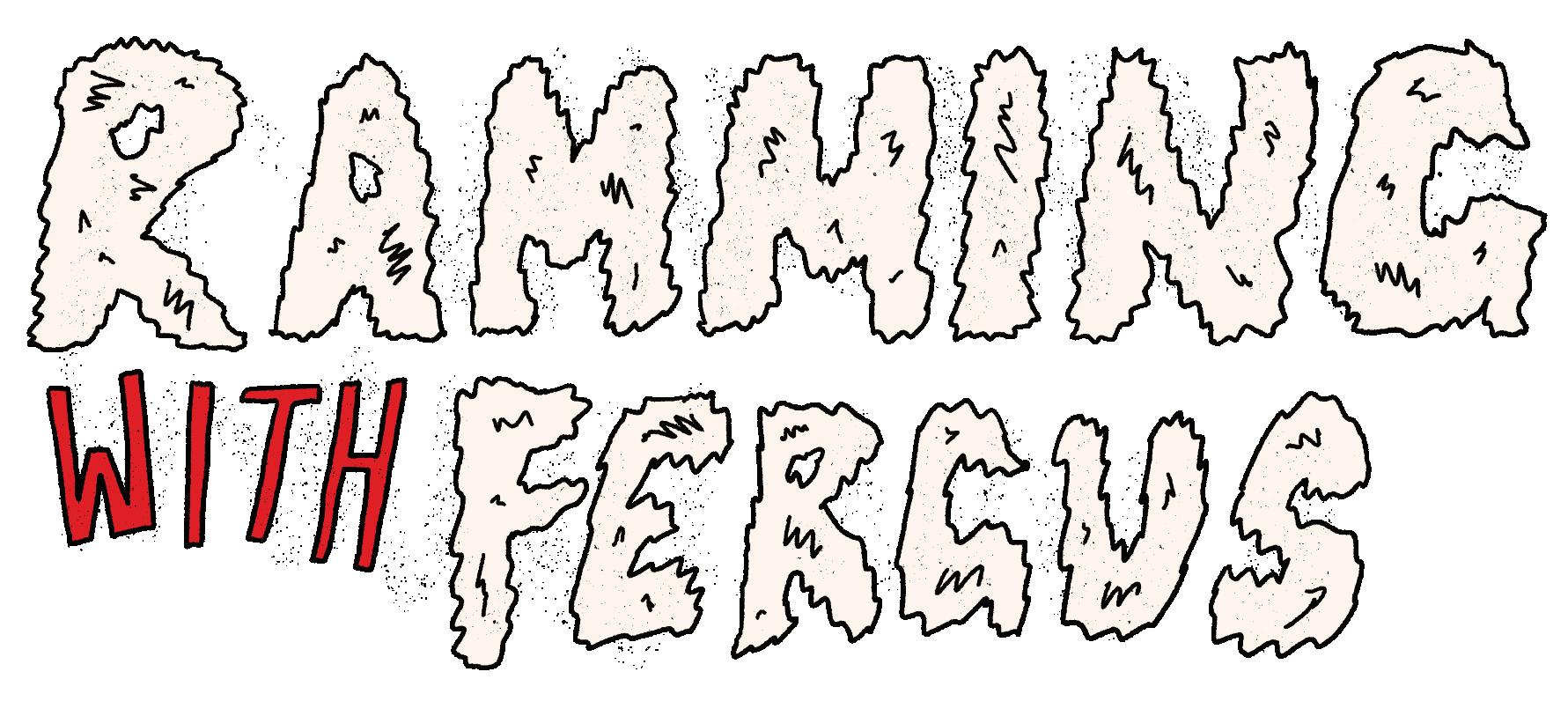
Q. HOW DO YOU AND YOUR COMMUNITY/FLOCK FEEL ABOUT SCIENCE BUDGET CUTS? DESPITE MASSEY SCIENCE STUDENTS ADMIRING SHEEP?
A.
Ah yes, finally an intellectual question.
I have heard through the grapevine of paddock mates about these ‘science budget cuts’ and I am not a happy ram. I have had many Massey science students spend their research money tracking me down, photographing me, studying me. I am a rare ram, my sexual abilities are like no other, and they need to be studied at length. But with science budget cuts, how will the students ever learn the true secret to how to ram like Fergus?
I have had many post-sex discussions with the sheep about this issue. High off a Fergus induced orgasm, they don’t seem to care too much. But after it wears off (which takes up to 48 hours) they come to be panicked, asking “Fergus, how will we teach the other rams to ram like you if the students can’t study your craft?”
Q. AS A FAMOUS CELEBRITY SHEEP SCIENTIST, DO YOU FEEL EXPLOITED BY THE CONFLICTING SOCIAL/ INTELLECTUAL/FINANCIAL CULTURE WARS CURRENTLY PLAGUING MASSEY UNIVERSITY?
A.
These sophisticated questions are making me hard. Call me a famous celebrity sheep scientist one more time.
I think exploited is the wrong word to use here. I feel like a trough becoming frozen over in the winter. Massey is too hot to be poor. I am too hot to be poor. I have become used to indulging myself. A trip to see the sheep on the Albany or Wellington campus? Only a $1000 national pet cargo flight away. A new sex toy for a magnificent sheep to enjoy? It’s on Massey.
But now, you expect me to tell my glorious flock that they will have to share? Well, that's just plain unsanitary, and not in the way I like it. Oh, when will this plague end Massey gods?!
FERGUS THE RAM IS MASSEY UNIVERSITY'S LONG-TIME MASCOT. HE IS ALSO A SEX GOD, ALPHA RAM AND HORNED UP FUCKBOY.


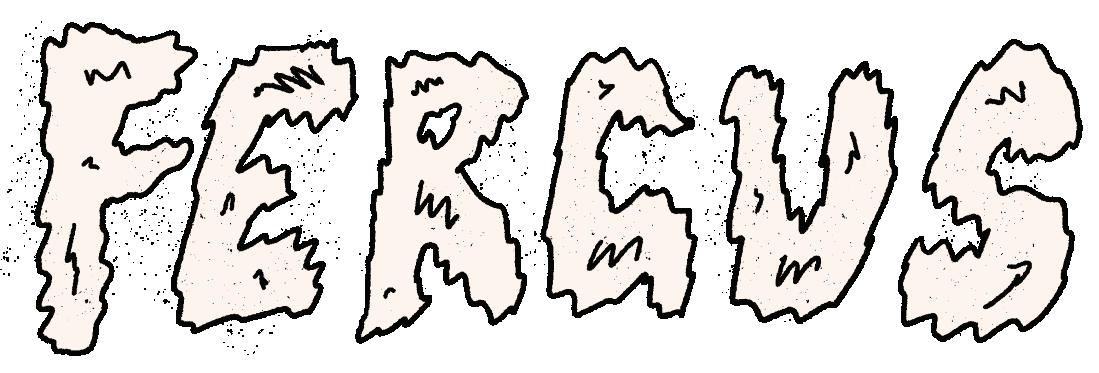
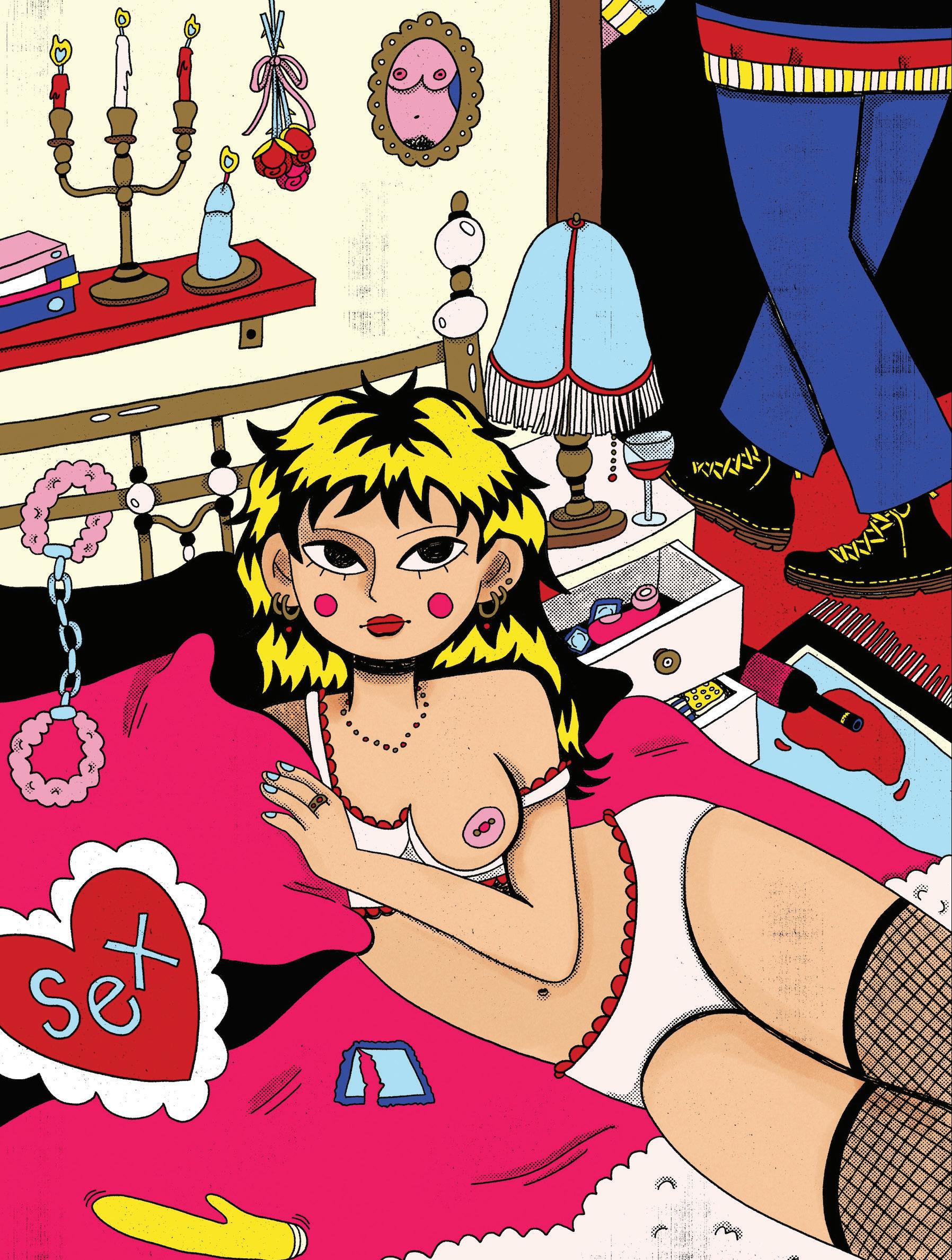


GOT A CONFESSION, A TAKE,NAUGHTY OR A SEXY STORY?

story for a while now, it’s a little embarrassing.
So, when I arrived at Massey I thought I’d be okay with just my two fingers and an imagination because I forgot my vibrator at home. A girl can dream, right? Well, that wasn’t enough for me.
One night all of us went to the pub. I wasn’t really feeling up to it since I had started my period a few days beforehand. But the girls convinced me that I should go, so I did.
before I left, then we went to the pubs and drank some more.
I tend to get very horny when I drink, so when I came home and fell in my bed, I looked over to see my knight in shining armor... the wine bottle.
I ended up fucking that wine bottle for a good while, only to pass out and wake up in the morning to a new red wine all over my bottle.





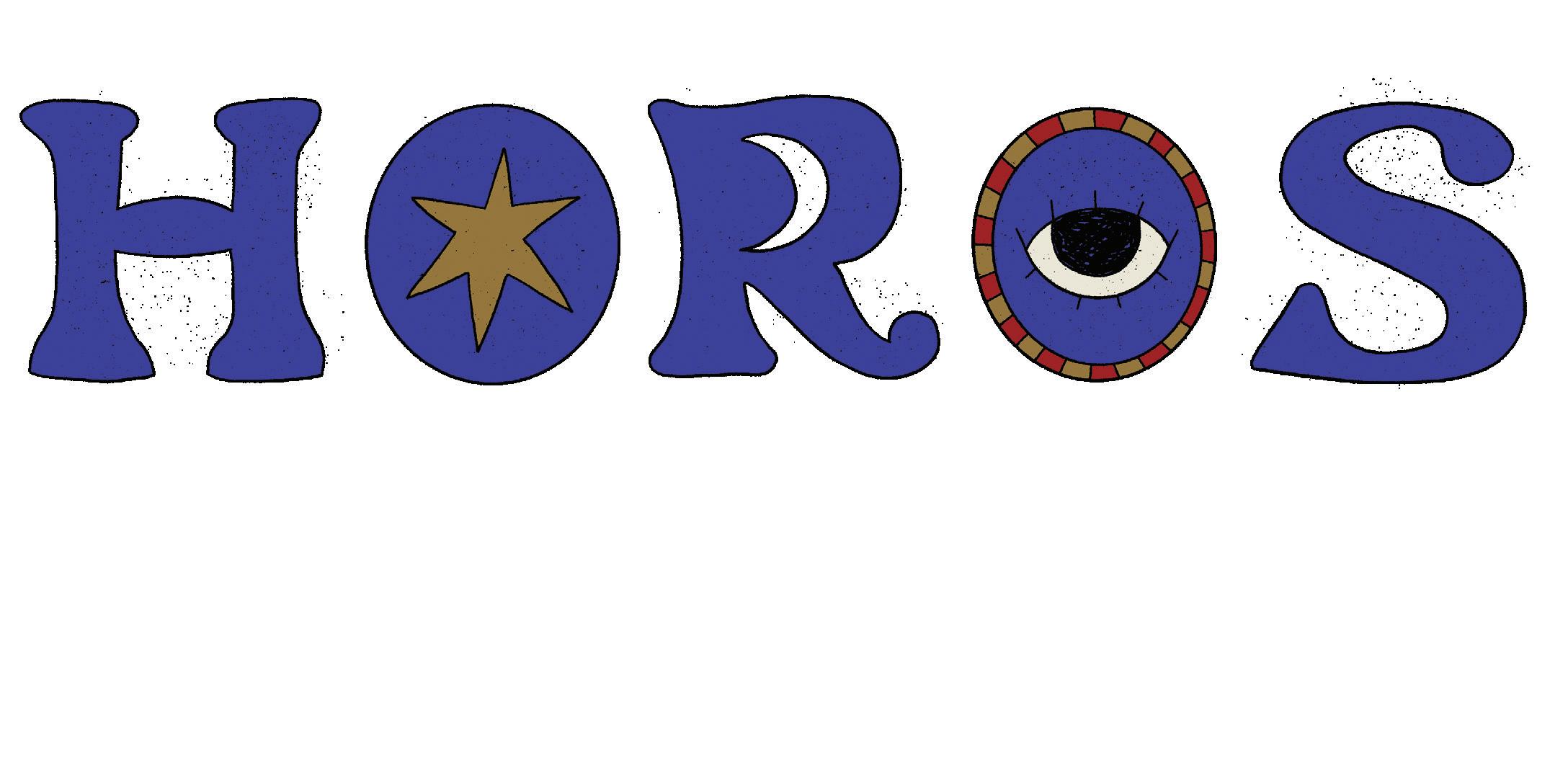



Try to avoid confrontation this week. You get fired up too easily sometimes, and it’s not going to turn out well for you. Get yourself a fidget ring and focus on that instead.

Your bad object permanence has you buying the same things over and over. Try to put your stuff where you can see it.
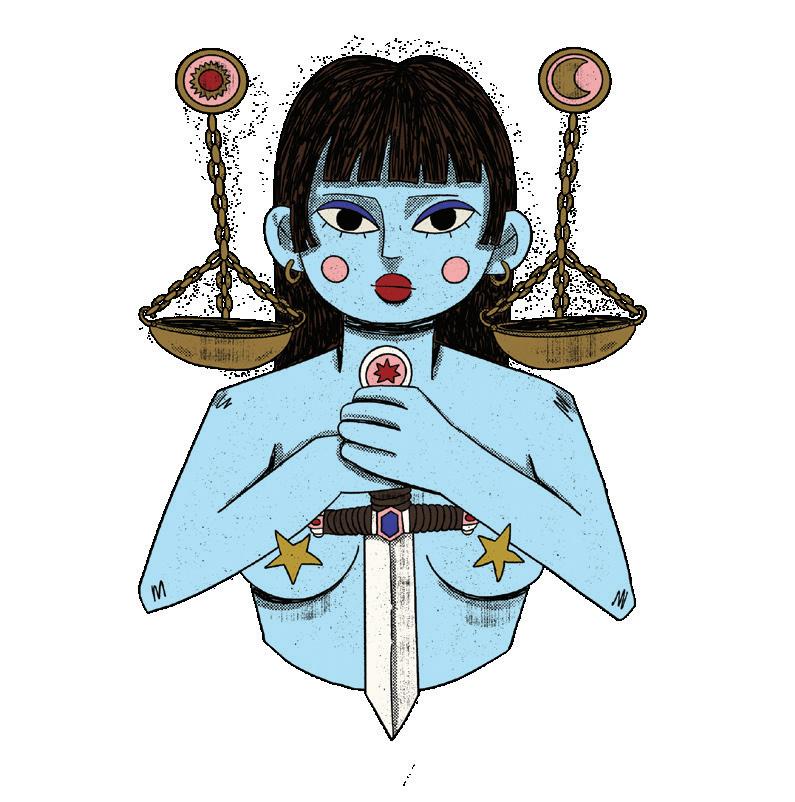

You love to keep the scales balanced. But juggling everyone else to keep the peace is helping everyone but you. Tip the scales your way this week.
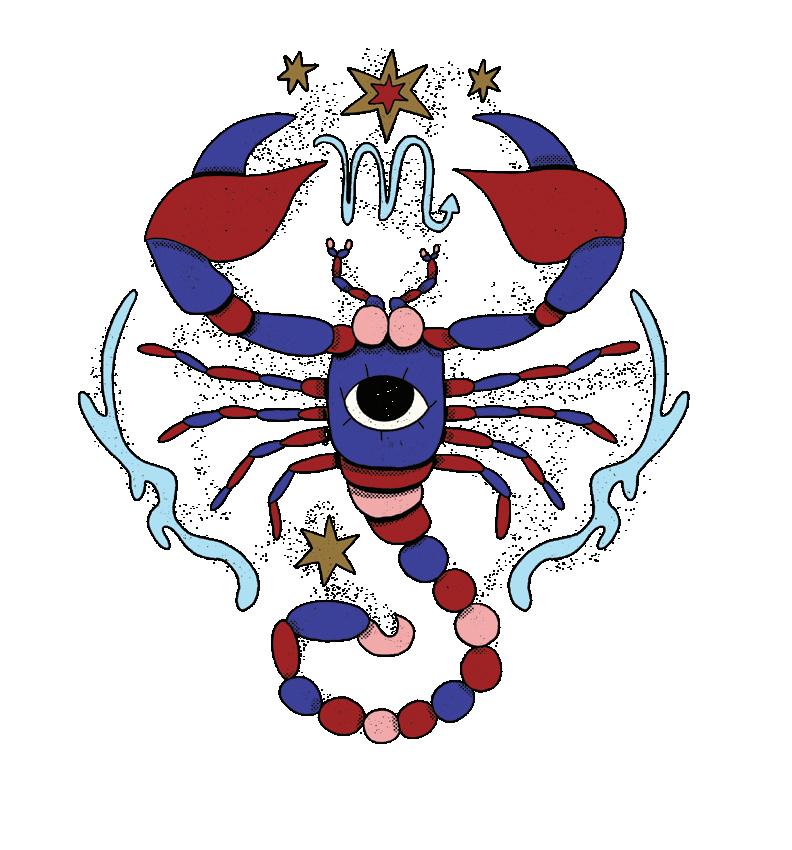
This week it’s time to party, Scorpio! You’ve been stressing out too much over small things, so let loose. Have a little fun instead of losing sleep over bad memories.
Stop rushing all the time! Life has been moving fast, and you’re forgetting to live in the moment. Take a day to do nothing and recharge.


This week you should avoid spontaneous activity. It’s fun to go out with no destination in mind, but if you don’t plan what you want to do something will go wrong.



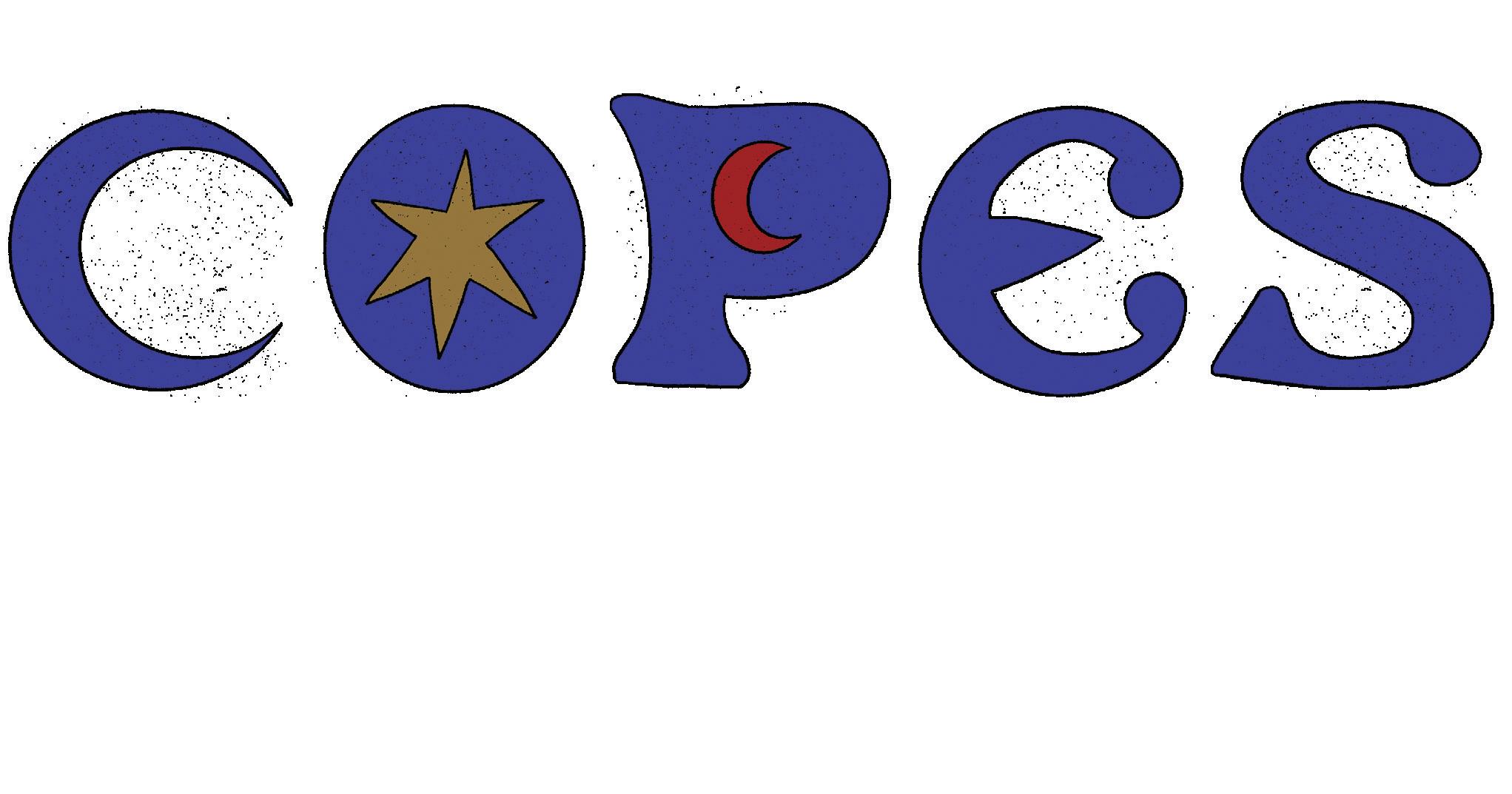
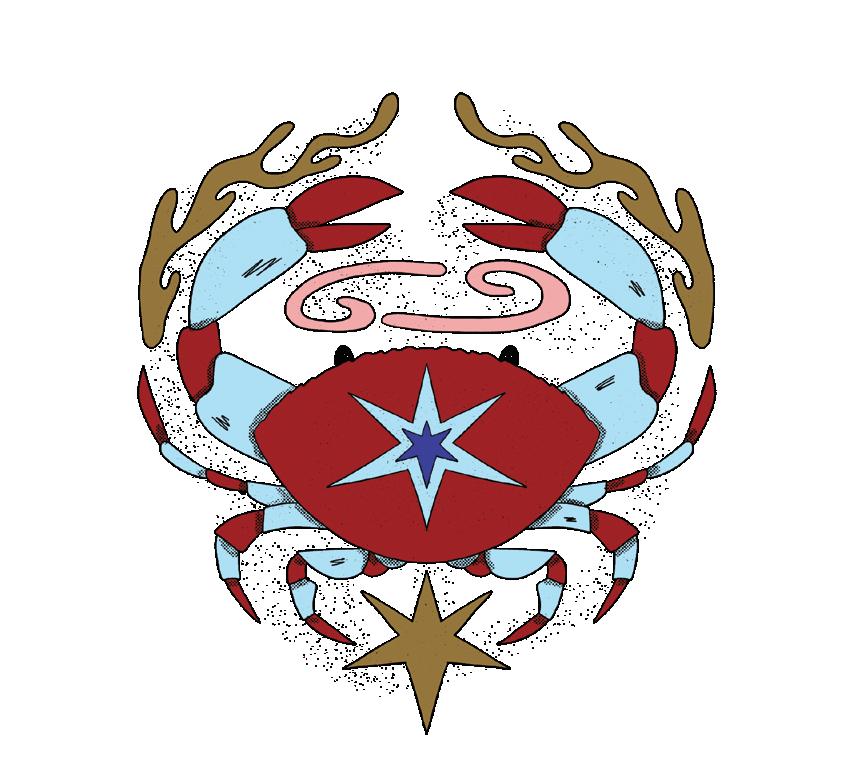

Don’t stay up too late this week. You love to be the centre of attention, and that’s fine! But maybe take a step back and let someone else enjoy the spotlight this week.
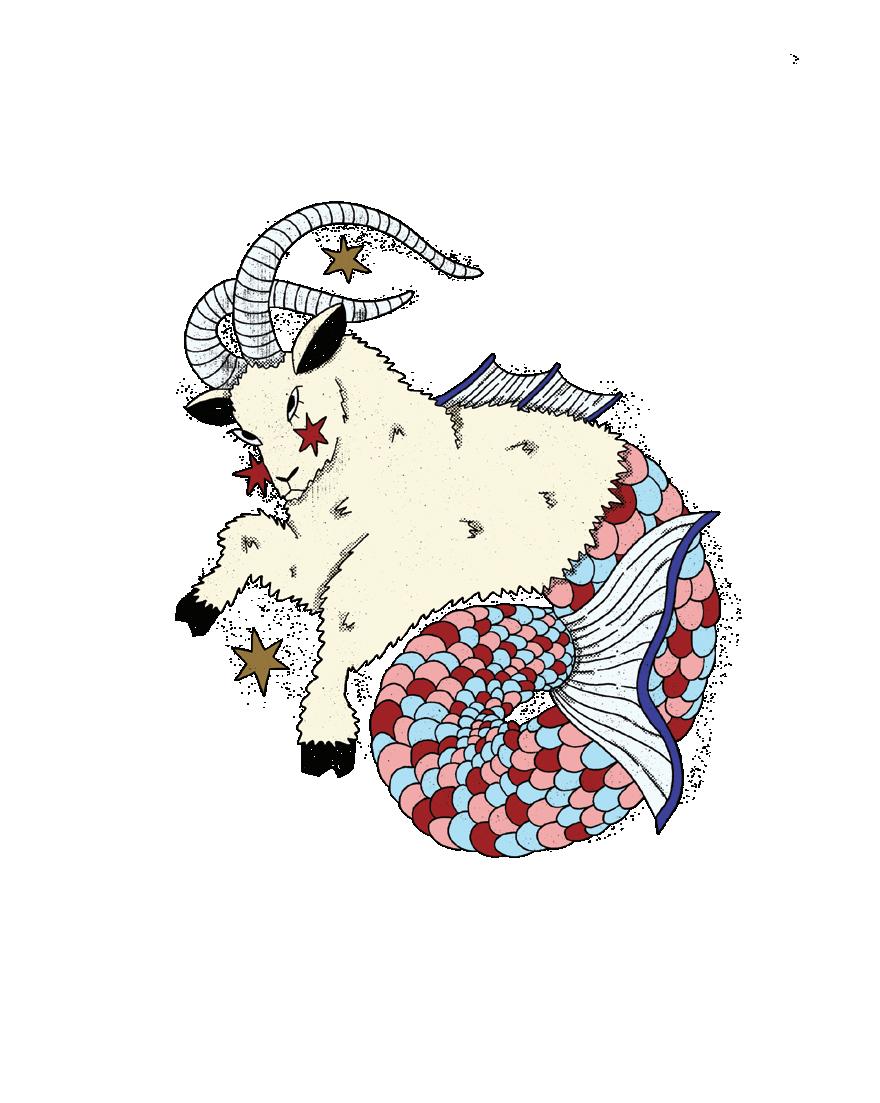
and staring at others.
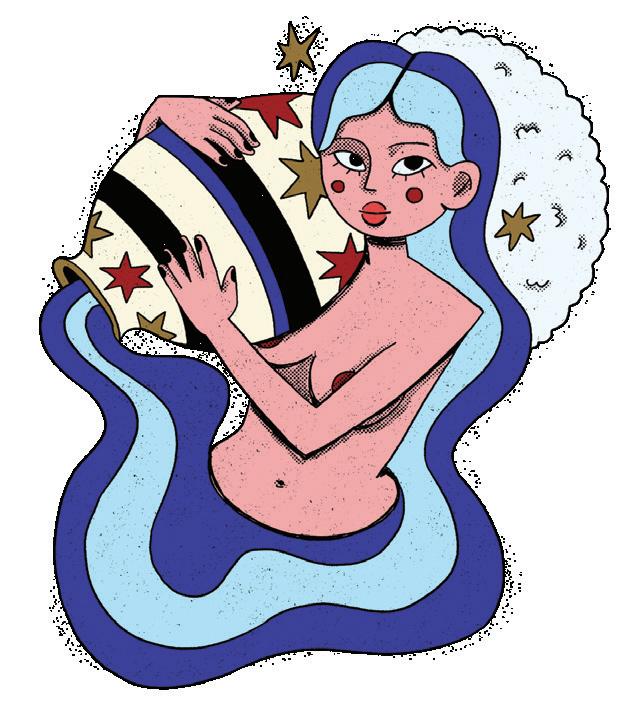
You are planning on being more eccentric this semester. But don’t go overboard. Some surprising clothes and a few bold statements will be enough.
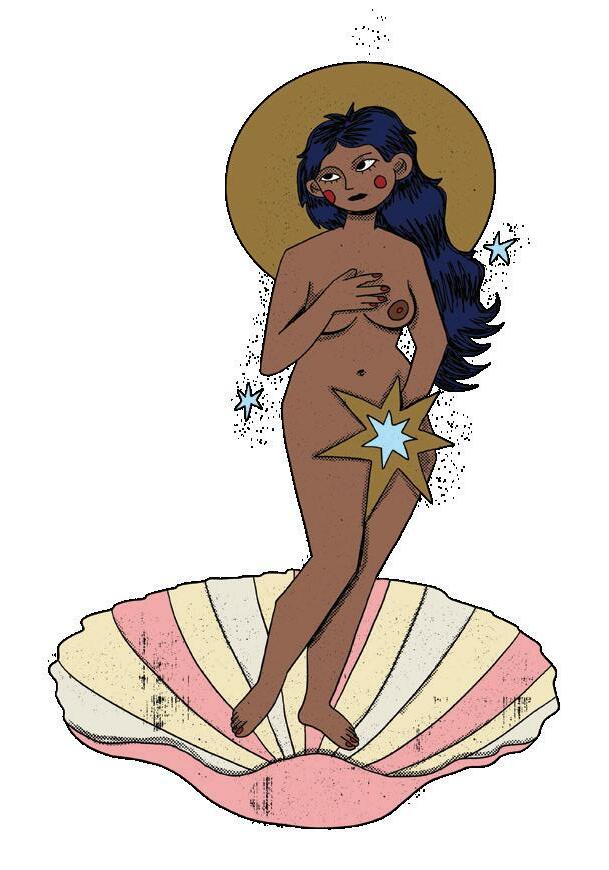
Last semester you got too obsessed with routine. This time around, let every day be different and don’t get stuck on consistency.


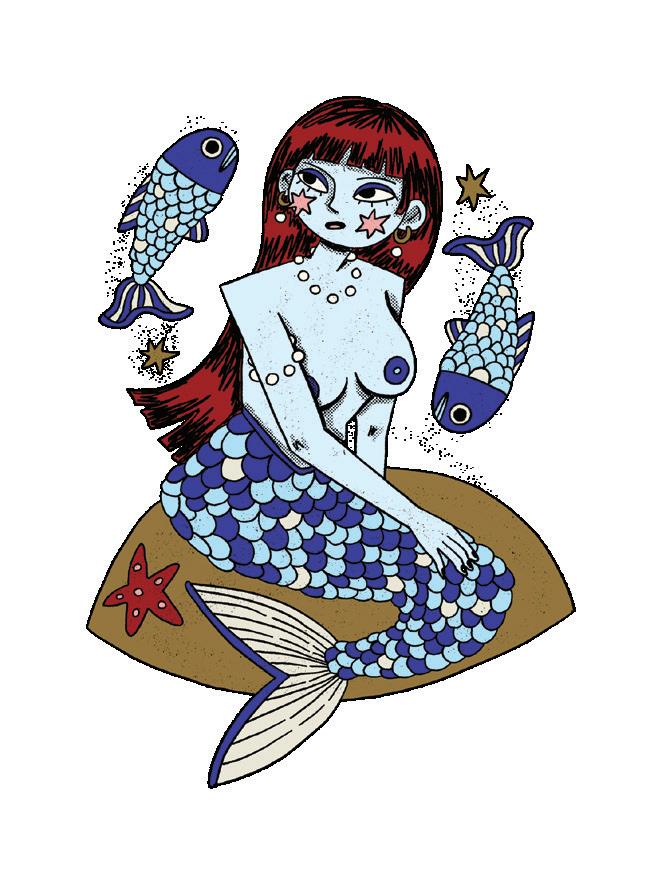
Your psychic predictions are freaking people out. Keep them for the people who understand you and appreciate knowing about the future.





7. An estimate of income and expenditure for a set period of time (6)
9. Buy now, pay later company (8)
11. ASB (8,7,4)
12. A building where gambling games are played (6)
15. A series of shops owned by one firm, selling the same goods (5)
19. 2013 Biopic about a stockbroker (3,4,2,4,6)
22. "Advertising has us chasing cars and ______, working jobs we hate so we can buy shit we don't need.” (7)
1. Currency in Dubai (7,6)
2. NZ finance minister (6,6)
3. What colour is New Zealand’s $50 dollar bill? (6)
4. NZ city with highest vehicle theft rate (8)
5. Te reo word for gift (4)
6. Character from The Wind in the Willows obsessed with money (2,4)
8. A trending phenomenon used to describe how women justify spending (4,4)
10. Annual sum made by an employer to an employee (6)
12. Digital money (14)
13. Slang for someone who shops excessively (10)
14. A very important, impressive, or memorable picture or scene (5,4)
16. Cheapest flight class (7)
17. Auction site founded in 1999 by Kiwi entrepreneur Sam Morgan (5,2)
18. Location of 2024 Olympics (5)
20. 1st on the Forbes billionaires list (4,4)
21. A form of gambling that involves drawing numbers at random (5)


AARIA HUNIA


EDITOR IN CHIEF
SAMMY CARTER
SHE/HER
TE AO MĀORI EDITOR
NGĀTI AWA, NGĀTI RANGITIHI
SHE/HER

MANAWATŪ REPORTER
ELIZABETH MOISSON
SHE/HER

STAFF WRITER
JESSIE DAVIDSON
SHE/HER


HEAD OF DESIGN

SUB-EDITOR
LUKA MARESCA
HE/THEY

TE AO MĀORI ILLUSTRATOR
KEELIN BELL
NATALYA NEWMAN
NGĀTI MANIAPOTO, NGĀTI POROU, NGĀPUHI

ŌTEHĀ REPORTER
YESENIA PINEDA
SHE/THEY

STAFF WRITER
KIRA CARRINGTON
SHE/HER

ILLUSTRATOR
JESS SKUDDER

MASSIVE P*SSY POCKET
POCKET WOULD NOT PROVIDE PURRRNOUNS
COVER AND CENTREFOLD ART BY GEORGIA ANDERSEN @TROBE.CLOTHING
